Top 10 Best Data Science PhD Online Programs

According to IBM, poor data quality costs the US economy around $3 trillion annually. Globally, that figure could be as high as $14 trillion. As a result, the demand for data scientists has soared in recent years, making a PhD in data science a highly sought-after degree.
Data scientists are highly skilled professionals who use cutting-edge technology to make sense of large, often unstructured, datasets. They are necessary for almost every industry to help provide analysis for a data-driven business environment. Data scientists use proven strategies such as clustering, behavioral analytics, and data mining to analyze and organize data to make informed decisions.
Becoming a data scientist requires a higher education to gain the necessary skills for this field. One of the best ways of doing so is earning a degree online. Better still, earning a data science PhD online will give you the most comprehensive set of tools required to advance your career.
Related Articles:
- Duties of a Typical Data Scientist
- What is a Data Science Ph.D Program Like?
- Does a Data Science Ph.D Significantly Increase Earning Power?
- How is a Data Science Degree Different from a Cybersecurity Degree?
- Tips for Finding Success in a Data Science Ph.D. Program

Methodology for Ranking the Best Online Data Sciene PhDs
A PhD in data science online is a great choice for data scientists who may not want to relocate or take time away from work. We looked at over 20 different doctoral programs in data science. We based our search on College Navigator and DataScience Community. This determined our top 10 for our data science PhD program ranking . We included data analytics doctoral programs in our search. The best programs had:
- limited residency requirements
- a highly interactive curriculum
- a variety of courses in data science
- support from expert-level faculty
We then based our data science PhD programs ranking on the following considerations and assigned points accordingly:
Student-to-Faculty Ratio
- 15:1 or less = 5 Points
- 16:1 to 20:1 = 3 Points
- Greater than 20:1 = 1 Point
Average Graduate Tuition
- Less than $10,000 per year = 5 Points
- $10,000 to $15,000 per year = 4 Points
- $15,001 to $20,000 per year = 3 Points
- $20,001 to $25,000 per year = 2 Points
- Greater than $25,000 per year = 1 Point
Cost is a factor we considered when developing our list. However, many PhD-level data science programs provide students with assistance to cover the cost of their tuition. We reviewed each school’s average graduate tuition rates from College Navigator, a website run by the National Center for Education Statistics. It provides information on institutions of higher education around the country.
Tuition rates can vary from program to program. We looked specifically at tuition rates for graduate school. Always consult the university to find out specifics related to their online PhD data science program. Check if they offer any financial aid or scholarships to reduce your overall cost.
Below are the best online doctorate degrees in data science based on our criteria. Our list highlights the best of the best in quality online doctorate in data science programs.
Data Science Doctorate Online Degree Programs Ranking
#1. capitol technology university – laurel maryland, doctor of philosophy (phd) in business analytics and data science.
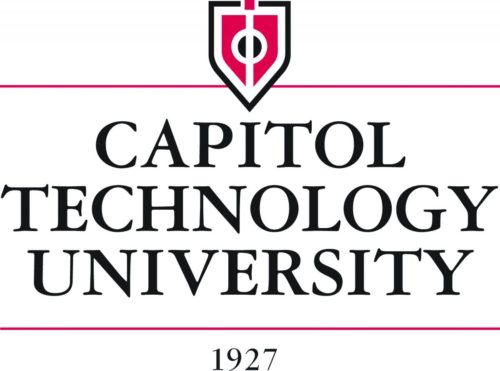
Program Website
- Student to Faculty Ratio: 9:1
- Average Graduate Tuition: $11,340/year
- Total Points: 9
Capitol Technology University offers our top data science online PhD. You will learn strategies and skills that prepare you for senior positions in the public or private sector. The low residency format allows you to balance your education with your established career. Most courses are offered online and cover areas like:
- analytics and decision analysis
- business intelligence
- machine learning
- data mining
- applied statistics and visualization for analytics
- Big Data warehousing and analytics systems
You must visit campus to complete your qualifying exam and work one-on-one and in groups to prepare for your dissertation. Core PhD in data analytics online courses are taught by working professionals who stay current on emerging developments in the field. You can feel confident you’re gaining professional skills that are in demand by top employers.
Program Pros:
- Most coursework is completed online
- Small class sizes
- Low average graduate tuition rate
- Tuition discounts for military
Program Cons:
- Abundance of program and institutional fees
- On-campus residency is required for some classes
#2. Dakota State University – Madison, South Dakota
Doctor of science in information systems.
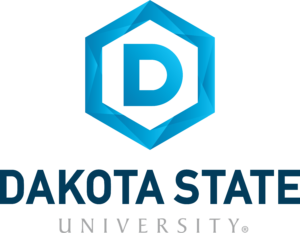
- Student to Faculty Ratio: 18:1
- Average Graduate Tuition: $5,999/year in-state; $11,199/year out-of-state
- Total Points: 8 (points were determined using in-state tuition)
DSU features one of the most flexible data science Doctor of Philosophy programs in this ranking. You can take courses online or on-campus and attend full or part-time. You can choose from three different areas of specialization as well:
- data management
- health care information systems
- information systems cybersecurity
- network administration and security
You can also choose to complete a general specialization. This requires you to take courses in application development, network administration and security, and data management. Core courses for all specializations cover relevant areas such as information systems, applied statistics, and web application development. You’ll also take classes in research, enterprise modeling, and data management, to name a few.
As a full-time student with a master’s degree, you should be able to complete this program in just three years. However, it can take as much as seven years to finish. When you graduate, you will have the tools needed to solve complex data science problems in a variety of settings, including academics, business and finance, and government.
- Multiple options for completing the program, including online or on-campus
- Multiple specialization options
- Just three years needed to complete the degree as a full-time master’s-level student
- Very low average in-state tuition
- Long list of knowledge requirements for admission
- High out-of-state tuition compared to in-state tuition
#3. Indiana Wesleyan University – Marion, Indiana
Online doctor of business administration – data analytics specialization.

- Student to Faculty Ratio: 17:1
- Average Graduate Tuition: $9,731/year
- Total Points: 8
This online program follows a cohort format, meaning you progress through the curriculum with the same classmates in each class. This format encourages the development of collegiality between you and your classmates and also enhances your working relationship with your professors.
The curriculum is problem-based. You’ll learn how to collect, analyze, organize, and interpret data. Many opportunities exist to enhance your writing and communication skills as well. Some of the courses you’ll take include the following:
- Data Analytics and Research
- Academic Writing for Business
- Foundations of Doctoral Research
- Leadership and Global-Based Teams
You must also complete a comprehensive examination, a scholar-practitioner paper, and an applied doctoral project.
The comprehensive examination must be completed prior to the applied doctoral project, and involves a critique of relevant research and a demonstration of your subject matter expertise. The purpose of the paper is to build the required research and writing skills to produce a piece worthy of submitting to industry journals. The doctoral project takes the place of a traditional dissertation. The project focuses on developing an evidence-based consulting report that directly addresses a real-world problem in the business world.
- Extremely affordable
- The applied doctoral project gives you real-world experience prior to graduating
- Data analytics focus is highly sought-after in business
- An on-campus residency is required
- The program includes a religious focus, which might conflict with your personal beliefs
#4. National University – San Diego, California
Doctor of philosophy in data science online.

- Student to Faculty Ratio: 16:1
- Average Graduate Tuition: $15,912/year
- Total Points: 6
National University features a research-oriented online PhD in data science that is aligned with industry needs. The unique one-on-one learning model provides unmatched personal attention – you’re paired with a professor for each course to give you the guidance you need to succeed.
New courses begin weekly and last eight weeks (except dissertation courses, which are 12 weeks long). This allows you to fit your education into your busy personal and professional schedule. This program includes courses that cover areas like big data development, data preparation methods, and data curation. You’ll also take courses such as:
- multivariate analysis
- data visualization and communication
- exploratory data analysis
- databases and business intelligence
- inferential and predictive analytics
You can complete this program in as little as three-and-a-half years. Once you graduate, you can pursue any number of data science-related careers. This includes database architecture, database administration, and data warehousing, among many others.
- One-on-one learning model provides the utmost support
- Program applications are accepted year-round
- Monthly program start dates
- High average graduate tuition rates compared to other programs on this list
#5. The University of Rhode Island – Kingston, Rhode Island
Online phd in computer science.

- Average Graduate Tuition: $15,402/year in-state; $29,904/year out-of-state
- Total Points: 6 (points were determined using in-state tuition)
The computer science PhD program at the University of Rhode Island is a flexible program available to you as a full- or part-time student. Most, but not all, computer science courses are available online, making it a good choice if you’re a professional in the Kingston area looking for a low-residency program.
Course offerings include options like Programming for Data Science, Data Structures and Abstractions, and Database Management Systems. All told, you must complete 52 or more credits of coursework, 18 dissertation research credits, and at least two credits of seminars.
You can earn your degree in four years, provided you study full-time. Admission is for the fall semester or spring semester; bear that in mind when applying to ensure you meet application deadlines for the next academic term.
- Full-time and part-time options are available
- A statistics PhD option is available
- Some on-campus coursework is required
- Expensive compared to other options on this list
#6. University of North Texas – Denton, Texas
Phd in information science-data science.
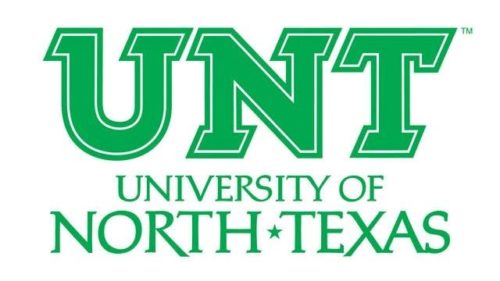
- Student to Faculty Ratio: 23:1
- Average Graduate Tuition: $7,160/year in-state; $14,720/year out-of-state
UNT’s Department of Information Science offers a PhD with interdisciplinary training. You will gain experience in doctoral research in data science and related areas that enhance your critical thinking skills, disciplinary thinking, and research capabilities. The program offers numerous concentration areas, allowing you to specialize your degree according to your interests. The available specializations are as follows:
- Consumer Behavior and Experience Management
- Cybersecurity
- Data Science
- Geospatial Information Science
- Health Informatics
- Knowledge Management
- Linguistics
Though most coursework is online, you must come to campus for a residential experience that gives you a high level of interaction with your professors. The faculty in this program are all highly experienced and provide real-world guidance to support your theoretical learning.
UNT is committed to keeping costs affordable. The university offers various financial aid opportunities, including grants, competitive scholarships, fellowships, and assistantship opportunities.
- Interdisciplinary curriculum
- Low in-state tuition
- Extremely high student-to-faculty ratio
#7. Johns Hopkins University – Baltimore, Maryland
Drph in health policy and management-public health informatics.

Program Websi te
- Student to Faculty Ratio: 6:1
- Average Graduate Tuition: $62,840/year
The Bloomberg School of Public Health at Johns Hopkins University features an online Doctor of Public Health with a concentration in health policy and management. Within the concentration is a track in public health informatics. It is delivered in a flexible part-time format. This data science-related doctorate degree requires you to complete a series of high-level courses in addition to a practicum experience during which you apply what you’ve learned in your courses in a public health informatics setting. A dissertation is also required.
Some of the courses you’ll take include the following:
- Statistical Reasoning in Public Health
- Advanced Data Analysis Workshop
- Qualitative Research Theory and Methods
- Introduction to Qualitative Data Analysis for Public Health
- Mixed Methods for Research in Public Health
Once you graduate, you can seek employment in mid- to senior-level positions in government agencies, non-profit organizations, or international public health organizations.
- Johns Hopkins is a prestigious university
- Healthcare-focused data science degree has high value
- The program can be completed entirely online
- Extremely expensive
- A Master of Public Health is required to apply
#8. Grand Canyon University – Phoenix, Arizona
Dba degree in data analytics – quantitative.

- Student to Faculty Ratio: 20:1
- Average Graduate Tuition: $10,138/year
- Total Points: 5
Grand Canyon University features an online, cost-effective DBA in data analytics that focuses on evidence-based theories and practices. You will learn to use statistical tools to clean numerical data, determine data’s reliability, and conduct data analyses. You’ll gain these skills in courses like:
- Analytic Foundations for Business Leaders
- Approaches to Research Design and Data Analysis
- Emerging Issues in Financial Management
- Foundations of Research Design
- Enterprise Data Complexity
You will also complete a dissertation. Unlike traditional PhD programs, this one requires you to begin the dissertation from the outset. You’ll work closely with faculty members to conduct original research and utilize what you learn to inform a detailed data analytics dissertation.
This program allows you to complete your coursework where and when it’s convenient. However, you must come to campus for two or three five-day residencies in Phoenix. These on-campus experiences allow you to network with other students and participate in mentorship opportunities and professional development with faculty members.
- Emphasis on mentorship from faculty members
- Quantitative research focus has wide applicability for careers
- Several on-campus residencies are required
- Program is designed specifically for business executives, which may preclude you from applying
#9. Colorado Technical University – Colorado Springs, Colorado
Doctor of computer science – big data analytics.
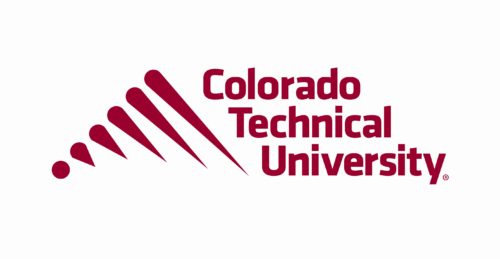
- Student to Faculty Ratio: 31:1
- Average Graduate Tuition: $14,104/year
The online doctorate in big data analytics from Colorado Technical University helps you learn the latest industry tools to produce meaningful insights from unstructured data. The data science curriculum is primarily delivered online, so you can build your course schedule around other obligations. Multiple start dates are offered throughout the year as well.
Another advantage of this program is that courses begin every five weeks, so that you can begin at your convenience. Despite requiring 100 credits to graduate, you can complete this degree in about three years of full-time studies. During that time, you’ll take courses focusing on:
- Advanced Topics in Database Systems
- Advanced Quantitative Analysis
- Artificial Intelligence in Real World Problem Solving
- Business Intelligence
- Futuring and Innovation
The big data analytics specialty also requires completing a research proposal and a dissertation. You’ll work on each project extensively throughout the program in preparation for defending your dissertation before graduation.
- Training in big data is in high demand in business and industry
- Fully online program
- Poor student-to-faculty ratio
- The program does not lead to licensure or certification
#10. University of the Southwest – Hobbs, New Mexico
Dba – data analytics.

- Student to Faculty Ratio: 19:1
- Average Graduate Tuition: $23,364/year
The University of the Southwest is a private, non-profit Christian university offering accredited degrees to online students. USW features an online doctorate in data analytics that prepares you to solve business challenges using a quantitative research approach. This data science program follows a mentorship model. You will work closely with faculty members to achieve your professional goals while benefitting from their real-world expertise.
This program’s coursework is delivered 100% online and there are no required residencies (though you have the option of participating in an on-campus or online residency if you choose). The curriculum focuses on foundational business data analytics skills. This includes data visualization, predictive modeling, and forecasting, to name a few.
A free laptop is included with the first course. There is no additional cost for textbooks or course materials – these components are included with tuition. You also benefit from a transfer policy allowing you to use up to 12 credits earned in a program from another regionally accredited university.
- The program is completely online
- Data analytics skills are widely applicable in various businesses and industries
- Free laptop, textbooks, and other course materials
- Relatively expensive tuition
- At least three years of data analytics experience is required for admission
Frequently Asked Questions
Is a phd in data science worth it.
A PhD in data science is the most advanced level of data science education available and can take years to complete. By the end, you’ll have a wide span of knowledge and understanding of the data science field. You will also have the education you’ll need to get top positions in research and academia.
A PhD is typically a research-oriented program. It can take some time before you hit a financial payoff after earning your PhD. High-paying jobs, such as data scientist jobs requiring a PhD, also usually require significant experience. You’ll need to be patient!
The decision to earn a PhD is not to be taken lightly. There are many benefits (as well as some downsides) of getting a PhD in data science.
Advantages:
- Research is a key piece of earning a PhD. You can conduct research during your dissertation that could advance the industry or solve a long-standing issue. Very exciting!
- There are several specializations in data science. Some master’s degree programs even offer concentration areas that PhD programs can build upon. Areas like biomedical data science, health informatics, and business analytics allow you to build upon your previous education and make meaningful contributions to the field.
- University partnerships provide you with the opportunity to work with real data sets. You can collaborate with others on research efforts, gaining new perspectives and insights.
- Some programs accept students with only a bachelor’s degree. Popular bachelor’s degree majors include analytics and computer science. You can earn a master’s while pursuing a PhD!
- Graduates with a PhD may see an increase in job opportunities in areas like academia and research.
Potential Disadvantages:
- A PhD takes a significant amount of time to complete. If you opt to complete a full-time program, you could be missing out on three to five years of financial earnings and real-world skill development.
- You’ll need to find a way to fund your PhD. Some students finance their degree on their own with the help of financial aid. Others apply to programs that fully fund students and offer stipends.
- Technology changes rapidly. Your time spent completing research could take away from gaining on-the-job industry data analysis knowledge and skills.
- Make certain your desired position requires a PhD. Many industries are perfectly happy with a bachelor’s degree or master’s in data science. It could also be a related area like computer science, as long as the applicant has relevant work experience.
If you decide to pursue a PhD, your hard work and commitment to your doctoral program and the field of data science will eventually pay off. You’ll be eligible for some of the field’s highest-paying and most prestigious jobs.
What jobs are available to a data scientist with a PhD?
Whether you complete your data science PhD online or on-campus, the job prospects are the same. A PhD can open the door to various exciting data science careers. Data science PhD graduates are primarily in demand in academic and industrial settings.
PhD data science programs are the primary avenue for getting a data-related position in academia. These positions can be fiercely competitive, though. Data science grads who can stay up to date on the latest trends and technologies are highly sought after. Business intelligence and machine learning are two specialized areas in demand by industry executives.
How long does it take to get a PhD in Data Science?
A data science doctoral program is a significant investment of time and money. You can expect to spend three to four years working on your PhD in data science. The specific amount of time it takes to complete a doctoral program in data science is determined by the degree requirements and your schedule.
Hybrid and online data science programs usually provide extra flexibility if you have a non-traditional schedule (e.g., you work a regular 8-5 job). Accelerated doctoral program options may be a great option for completing your doctorate in data science, saving you time and money along the way.
What are the requirements for a PhD in data science degree program?
Admissions requirements.
Admission to a PhD program is extremely competitive. Because of the intense nature of the program, an extremely limited number of doctoral degree applicants are accepted each year. You must submit a strong application packet that makes you stand out from the competition.
You should have a minimum of a master’s degree with a cumulative GPA of at least 3.0 on a 4.0 scale. This does not need to be from a data science masters program , but of course, it will help. Some online data science programs may also require you to submit letters of recommendation, a statement of purpose, and GRE scores. You might also be required to provide a curriculum vitae or a resume. In some instances, an interview (either in person or web-based video) may also be required.
A doctorate degree is typically comprised of several different parts. These include the following:
Coursework:
A PhD in data science requires coursework that helps build a strong educational foundation. Core courses may cover areas that include:
- statistical methods
- knowledge management
- machine learning.
Comprehensive Exam:
Before beginning the doctoral dissertation process, you may need to complete a comprehensive examination. This exam allows faculty to assess your level of knowledge and understanding of the field before beginning your dissertation.
Dissertation Proposal
The dissertation proposal is a comprehensive statement describing the research you want to accomplish. As part of this process, you will:
- state your research question
- discuss the general scope of your project
- discuss how you’ll do it
- explain how it contributes value to the field
Dissertation Research:
Dissertation research is the final piece of doctoral study. You complete the dissertation research project you designed and summarize your research and findings in your dissertation paper.
Field Experience:
Some data science graduate programs require you to complete a field experience as part of the curriculum. You may work with an outside organization or a research center on-campus to create original research or solve a real-world data science problem.
Special Projects:
Many data science doctoral programs offer you the opportunity to participate in special projects. These unique professional development opportunities allow you to develop areas of specialized knowledge that can help them build your resume.
Will I need any licenses or certificates to get a job in data science?
There’s no standard industry license or certification for data science professionals. Data professionals who want to stand out from the competition have a variety of certification options available. These specialized training programs allow you to develop technical skills that recruiters and hiring managers look for. Some popular certifications include:
Cloudera Data Platform (CDP) Generalist Certification
This certification validates proficiency with the Cloudera platform. Certification applies to multiple roles including, data analysts, developers, and system architects. The exam takes 90 minutes to complete and consists of 60 questions.
Data Science Council of America (DASCA) Principal Data Scientist
The Data Science Council of America is an industry leader for professional development opportunities in data science. It offers the Principal Data Science (PDS) certification, which is designed for professionals with at least ten years of experience working with big data. The primary audience is “seasoned and high-achiever data science thought and practice leaders.” The certificate is awarded after meeting eligibility criteria and passing a self-paced online exam. At a minimum, completing the certification process will take several months. You have a year to finish, though.
Microsoft Certified Azure AI Fundamentals
If you want a certification to validate your knowledge and skills in machine learning and artificial intelligence related to Azure services, this might be the certificate for you. This is a fundamental certification, so it’s great if you’re new to AI and need to demonstrate your proficiency to your employer. The certification test takes 45 minutes to complete.

- Youth Program
- Wharton Online
Statistics and Data Science
Wharton’s phd program in statistics and data science provides the foundational education that allows students to engage both cutting-edge theory and applied problems. these include theoretical research in mathematical statistics as well as interdisciplinary research in the social sciences, biology and computer science..
Wharton’s PhD program in Statistics and Data Science provides the foundational education that allows students to engage both cutting-edge theory and applied problems. These include problems from a wide variety of fields within Wharton, such as finance, marketing, and public policy, as well as fields across the rest of the University such as biostatistics within the Medical School and computer science within the Engineering School.
Major areas of departmental research include:
- analysis of observational studies;
- Bayesian inference, bioinformatics;
- decision theory;
- game theory;
- high dimensional inference;
- information theory;
- machine learning;
- model selection;
- nonparametric function estimation; and
- time series analysis.
Students typically have a strong undergraduate background in mathematics. Knowledge of linear algebra and advanced calculus is required, and experience with real analysis is helpful. Although some exposure to undergraduate probability and statistics is expected, skills in mathematics and computer science are more important. Graduates of the department typically take positions in academia, government, financial services, and bio-pharmaceutical industries.
For information on courses and sample plan of study, please visit the University Graduate Catalog .
Get the Details.
Visit the Statistics and Data Science website for details on program requirements and courses. Read faculty and student research and bios to see what you can do with a Statistics PhD.

Statistics and Data Science Doctoral Coordinator
Dr. Bhaswar Bhattacharya Associate Professor of Statistics and Data Science Associate Professor of Mathematics (secondary appointment) Email: [email protected] Phone: 215-573-0535
10 Best Online PhD in Data Science Programs [2024 Guide]
If you have a passion for mining information from large amounts of data, you should consider exploring PhD Data Science online programs.

Editorial Listing ShortCode:
Furthering your education in this field can help take your career to the next level. By earning your PhD, you may increase not only your knowledge but also your salary.
Universities Offering Online Data Science Doctorate Degree Programs
Methodology: The following school list is in alphabetical order. To be included, a college or university must be regionally accredited and offer degree programs online or in a hybrid format. In addition, the schools offer online data science programs .
1. Capella University
Founded in 1993, private Capella University offers online doctorate, master’s, and bachelor’s degrees. The Minneapolis-based school’s 38,000 enrolled students represent 50 states and 61 countries. Doctoral students account for more than 27 percent of Capella University’s student body.
- DBA in Business Intelligence – Data Analytics
Capella University is accredited by the Higher Learning Commission.
2. Capitol Technology University
Capitol Technology University is a private university located near the nation’s capital in South Laurel, Maryland. Established in 1927, the university now offers undergraduate and master’s programs in business, computer science, cybrsecurity, and engineering.
Capitol Technology University is a military-friendly school founded by a Navy veteran. It holds the prestigious SC Media Award for Best Cybersecurity Higher Education Program. The school’s annual enrollment is approximately 850 students.
- PhD in Business Analytics and Data Science
Capitol Technology University is accredited by the Middle States Commission on Higher Education.
3. Colorado Technical University
Colorado Technical University was founded in 1965. This private university offers undergraduate, graduate, and doctoral degrees in business management and technology.
The school has earned the U.S. News & World Report “Best for Veterans” designation, the Council of College and Military Educators (CCME) Institution Award, and recognition as a center of Academic Excellence in Information Assurance and Cyber Defense from the NSA and Department of Homeland Security.
Annual enrollment stands at around 26,000 students.
- Doctor of Computer Science – Big Data Analytics
Colorado Technical University is accredited by the Higher Learning Commission.
4. Columbia University
New York City’s Columbia University is a private Ivy League research university founded in 1754. It stands today as the oldest university in New York City. Columbia operates four undergraduate schools and 15 graduate/professional schools.
Bachelor’s, master’s, and PhD programs covering business, medicine, liberal arts, technology, and political science are available. Student enrollment at Columbia stands at roughly 33,413.
- PhD in Data Science
Columbia is accredited by the Middle States Commission on Higher Education.
5. Grand Canyon University
Grand Canyon University is a private Christian college based in Phoenix, Arizona. With a student enrollment of 70,000 students, it is considered to be the world’s largest Christian university.
Grand Canyon University offers bachelor’s, master’s, and doctoral degrees in business, education, health sciences, liberal arts, and nursing. The school offers a total of 200 academic programs throughout its nine colleges.
- DBA in Data Analytics
Grand Canyon University is accredited by the Higher Learning Commission.
6. Harrisburg University of Science and Technology
Founded in 2001, Harrisburg University of Science and Technology is a STEM-focused institution with campuses in Harrisburg and Philadelphia.
This private university offers bachelor’s degrees, master’s degrees, doctoral degrees, and certificate programs. The nearly 6,000 students enrolled study degree paths related to applied science and technology.
- PhD in Data Sciences
Harrisburg University of Science and Technology is accredited by the Middle States Commission on Higher Education.
7. Indiana University-Purdue University Indianapolis
Indiana University-Purdue University Indianapolis is a public research university offering more than 225 options for bachelor’s, master’s, and doctoral degrees across 18 different schools. The university’s campus is based in Indianapolis, Indiana.
The more than 30,000 students enrolled pursue degrees in majors like art and design, business, education, engineering, law, liberal arts, medicine, nursing, and social work.
- PhD in Data Science (on-campus)
Indiana University – Purdue University Indianapolis is accredited by the Higher Learning Commission.
8. National University
National University is a network of nonprofit educational institutions that is headquartered in San Diego, California. It offers a range of bachelor’s degrees, master’s degrees, doctoral degrees, and certificates in business, education, marriage and family therapy, psychology, and technology.
NU has over 30,000 students enrolled and more than 220,000 alumni from around the world.
National University is accredited by the Western Association of Schools and Colleges.
9. Stevens Institute of Technology
Located in Hoboken, New Jersey, Stevens Institute of Technology is a private research institution with an enrollment of approximately 6,125 students. Founded in 1870, the school has been named among the “Best Value Colleges” by the Princeton Review.
Additionally, the Princeton Review ranks Stevens Institute of Technology among its “Top 15 for Internships.” The school’s undergraduate and graduate students represent 47 states and 60 countries. Students can pursue bachelor’s, master’s, doctoral, and certificate programs.
Stevens Institute of Technology is accredited by the Middle States Commission on Higher Education.
10. University of Central Florida
Located along Orlando’s Space Coast, the University of Central Florida is a public research university with a student enrollment of approximately 69,525. It offers bachelor’s, master’s, and doctoral programs.
Students can pursue degrees in arts and humanities, business, engineering, computer science, health science, medicine, and nursing. The University of Central Florida has been ranked as a “Best Southeastern College” by the Princeton Review.
- PhD in Big Data Analytics
The University of Central Florida is accredited by the Southern Association of Colleges and Schools Commission on Colleges.
Online PhD in Data Science Programs

Data science is exactly what it sounds like – the study of data. Data scientists look at sets of data and notice patterns that emerge. They identify key information that data presents which may not seem readily apparent at first.
If you are someone that notices the small details while also keeping an eye on the bigger picture, a career in data science may be right for you. If you find trends and patterns in large amounts of data, you may be well-suited for this field.
What kind of job can you expect to have as a data scientist? In the last few years, Glassdoor has continuously ranked data scientist as one of the best jobs to have in the United States. The options for specific jobs are numerous and varied.
For example, one data scientist may work as a statistician and interpret statistical information for the U.S. Department of Agriculture. Another data scientist may be a business intelligence developer for Discover, creating strategies for businesses to make more informed decisions about their company.
Data Science Pros and Cons

As with any financial and length time investment, you should consider both the pros and the cons of earning your PhD in an online data science program.
All salary data in this table was provided by the Bureau of Labor Statistics.
Choosing to pursue an online PhD in a data science program is decision that must be taken into careful consideration, but there are many benefits to completing a program.
Data Science Curriculum & Courses

Curriculum for data science programs is heavily focused on analysis and research. Examples of courses offered by universities like Dakota State University and the University of North Texas are listed below.
- Information Systems – This course is designed to help students learn about the role information systems have for businesses and other organizations.
- Applied Statistics – This class teaches how to use statistical software to study data samples and make inferences based on the data presented.
- Project and Change Management – This class is designed to help students learn the underlying principles for managing information systems and how to utilize software for project management.
- Technology for Mobile Devices – Students in this course study the process of developing apps for mobile devices like smartphones and tablets.
- Advanced Network Technology and Management – This class helps students learn how to work with a model network environment, including how to find solutions for problems with the network.
- Seminar in Research and Research Methodology – Students in this seminar are asked to develop a research proposal and participate in a research study.
- Knowledge Management Tools and Technologies – This course introduces students to a variety of technologies including those associated with knowledge management and IT infrastructure.
- Seminar in Communication and Use of Information – This class explores the roles communication plays at various levels in society.
- Readings in Information Science – Students in this class study texts which emphasize methodological and theoretical issues.
- Medical Geography – In this course, students study the correlation between location and health care and work on their own projects.
Exploring the curriculum offered by different universities can help you determine which online PhD program is best suited for your interests and your needs.
Data Science PhD Admissions

Before applying for a PhD program, you will want to ensure that you have all the application materials on hand, including the commonly required materials listed below.
- Reference letters – You should request these documents well before your application deadline as mentors may not be able to honor a last-minute request due to time constraints.
- All transcripts – These grades will include both undergraduate and graduate level courses.
- Letter of intent – Be prepared to explain in writing why you want to enroll in the program and what you plan to do after its completion.
- Application fee – Fees to cover administrative costs of reviewing your application can add up, so make sure to budget for the costs of each one.
- Resume – Schools want to know your background in not just education but in the job market as well.
- Specific program application – Your prospective school will most likely have its own unique application on its official website.
Save yourself the stress of anxiously waiting to receive documents from an institution or mentor in time and compile them well ahead of the due date.
Data Science PhD Careers & Salaries
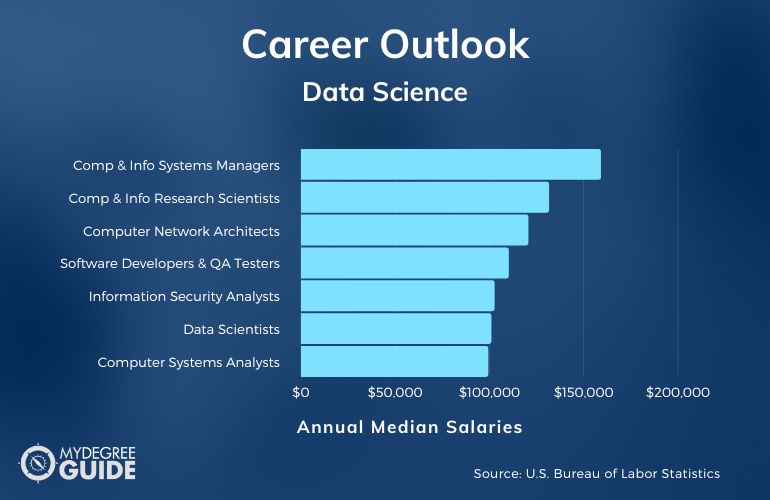
According to the U.S. Bureau of Labor Statistics , computer and information research scientists earned a median of $131,490 a year. Data scientists as a group earn increasingly high salaries in various industries including research laboratories, government departments, and a variety of companies focused on technology.
Some of the top companies that utilize data scientists are IBM, Amazon, Microsoft, Facebook, Oracle, Google, and Apple. These multi-billion dollar companies are consistently hiring data scientists to interpret the large amounts of data, or “big data,” that is collected via their services.
Data scientists can expect to work in roles where job duties include designing data models, organizing data from multiple sources, and identifying trends in data.
Data scientists use a comprehensive process for gathering and analyzing information including asking questions, acquiring data, storing data, using models to interpret it, and presenting their findings to stakeholders in the community.
According to the Bureau of Labor Statistics, some careers in the data science field include:
Whatever the job title, data scientists continually earn a significant amount more than employees in other fields.
Data Science Accreditation

Before clicking the “submit” button on your application to a PhD program, you will want to ensure that the university you are applying to is accredited, meaning it is recognized as a legitimate program that offers quality coursework and research opportunities.
If you decide to apply to a program related to computer technology or engineering, the Accreditation Board for Engineering and Technology (ABET) determine which schools offer suitable coursework and requirements for these fields. Also be sure that your prospective university is regionally accredited, the gold-standard for accreditation in the United States.
Search on your prospective schools’ website for information regarding their accreditation status. You will want to ensure that the schools you apply to are regionally accredited so you can get the most out of your PhD experience and your credits will be more likely to transfer should you switch schools while studying.
Data Science Professional Organizations

Joining a professional organization can help to advance your career by connecting you with other individuals who work in the same field.
Professional organizations offer a multitude of benefits, including networking opportunities (which may help to connect you with future employers), and they can also provide inspiration for completing your PhD program, decreasing feelings of isolation that can accompany students.
- Association for Information Science and Technology – This organization states its role “advances the information sciences and similar applications of information technology by helping members build their skills and [develop] their careers” via several different ways, including training and education.
- Association of Information Technology Professionals – This agency gives members advice on how to pursue certain career paths while also providing discounts on certifications and resources for professional development.
- International Association for Social Science Information Services and Technology – IASSIST has 300 members from countries around the world. They offer resources for professionals from sectors such as non-profits, academia, and government.
While some organizations may have a yearly membership fee, the potential gains for job opportunities and professional development through these groups can easily offset those costs.
Financial Aid

Across the nation, the average cost of obtaining a PhD online is between $4,000 and $20,000. As a student in a PhD program, you can expect to have costs from tuition, books, personal supplies, transportation, etc. Without the time or energy for a full-time or often, even part-time job, you should explore all financial aid options available.
Financial aid for PhD students can come in the form of loans, scholarships, and grants. Grants and scholarships typically do not have to be paid back, but loans are borrowed money which may accrue interest and should be a last resort for students.
Some specific scholarships and grants are designed with scientists, including data scientists, in mind. For example, the National Science Foundation Graduate Research Fellowship is designed to support students who are pursuing research-based doctoral degrees.
Previous recipients include Nobel Prize winners, a U.S. Secretary of Energy, and the founder of Google.
Another common source of money comes from taking on teaching assistant positions within your university or becoming an assistant lecturer. Both positions are great for gaining experience teaching in your academic department while generating income to offset the costs incurred from your years of study.
How long does it take to get a PhD in data science?

It takes an average of 71 credits to complete a PhD in data science. On top of this, students may also have responsibilities to research and/or teach, which can make the process take even longer.
It is not unusual for some PhD programs to take anywhere from four to five years to complete.
Is a PhD in data science worth it?
Whether or not a PhD in data science is “worth it” depends on a number of factors. Do you have the time available for next few years (possibly longer) to invest in this opportunity? Are you motivated enough to complete coursework while also on a shoestring budget?
Search for employment positions you are interested in and take a look at the education requirements employers are requesting. These factors may effect your decision in potentially pursuing an online masters in data science instead.
Can I do a PhD in data science?
Whether or not you complete a PhD in data science depends on your ability to stay focused and motivated. PhD programs are notoriously intensive, and they are not for everyone.
You should have a better reason for applying to a program than simply not knowing what to do in today’s job market.
Getting Your PhD in Data Science Online

Obtaining your doctoral degree in data science is not an easy task, but it is also not an impossible one. If you are serious about pursuing your PhD, talk to experts in the field. The admissions departments at prospective universities can help put you in touch with recruiters who can give you more information about the program.
Joining a professional organization can help you connect with individuals who are working in the field, many of whom will have obtained their higher education degree. With careful planning and the right information to make informed career choices, you can further your education and your sense of accomplishment.


Cornell University does not offer a separate Masters of Science (MS) degree program in the field of Statistics. Applicants interested in obtaining a masters-level degree in statistics should consider applying to Cornell's MPS Program in Applied Statistics.
Choosing a Field of Study
There are many graduate fields of study at Cornell University. The best choice of graduate field in which to pursue a degree depends on your major interests. Statistics is a subject that lies at the interface of theory, applications, and computing. Statisticians must therefore possess a broad spectrum of skills, including expertise in statistical theory, study design, data analysis, probability, computing, and mathematics. Statisticians must also be expert communicators, with the ability to formulate complex research questions in appropriate statistical terms, explain statistical concepts and methods to their collaborators, and assist them in properly communicating their results. If the study of statistics is your major interest then you should seriously consider applying to the Field of Statistics.
There are also several related fields that may fit even better with your interests and career goals. For example, if you are mainly interested in mathematics and computation as they relate to modeling genetics and other biological processes (e.g, protein structure and function, computational neuroscience, biomechanics, population genetics, high throughput genetic scanning), you might consider the Field of Computational Biology . You may wish to consider applying to the Field of Electrical and Computer Engineering if you are interested in the applications of probability and statistics to signal processing, data compression, information theory, and image processing. Those with a background in the social sciences might wish to consider the Field of Industrial and Labor Relations with a major or minor in the subject of Economic and Social Statistics. Strong interest and training in mathematics or probability might lead you to choose the Field of Mathematics . Lastly, if you have a strong mathematics background and an interest in general problem-solving techniques (e.g., optimization and simulation) or applied stochastic processes (e.g., mathematical finance, queuing theory, traffic theory, and inventory theory) you should consider the Field of Operations Research .
Residency Requirements
Students admitted to PhD program must be "in residence" for at least four semesters, although it is generally expected that a PhD will require between 8 and 10 semesters to complete. The chair of your Special Committee awards one residence unit after the satisfactory completion of each semester of full-time study. Fractional units may be awarded for unsatisfactory progress.
Your Advisor and Special Committee
The Director of Graduate Studies is in charge of general issues pertaining to graduate students in the field of Statistics. Upon arrival, a temporary Special Committee is also declared for you, consisting of the Director of Graduate Studies (chair) and two other faculty members in the field of Statistics. This temporary committee shall remain in place until you form your own Special Committee for the purposes of writing your doctoral dissertation. The chair of your Special Committee serves as your primary academic advisor; however, you should always feel free to contact and/or chat with any of the graduate faculty in the field of Statistics.
The formation of a Special Committee for your dissertation research should serve your objective of writing the best possible dissertation. The Graduate School requires that this committee contain at least three members that simultaneously represent a certain combination of subjects and concentrations. The chair of the committee is your principal dissertation advisor and always represents a specified concentration within the subject & field of Statistics. The Graduate School additionally requires PhD students to have at least two minor subjects represented on your special committee. For students in the field of Statistics, these remaining two members must either represent (i) a second concentration within the subject of Statistics, and one external minor subject; or, (ii) two external minor subjects. Each minor advisor must agree to serve on your special committee; as a result, the identification of these minor members should occur at least 6 months prior to your A examination.
Some examples of external minors include Computational Biology, Demography, Computer Science, Economics, Epidemiology, Mathematics, Applied Mathematics and Operations Research. The declaration of an external minor entails selecting (i) a field other than Statistics in which to minor; (ii) a subject & concentration within the specified field; and, (iii) a minor advisor representing this field/subject/concentration that will work with you in setting the minor requirements. Typically, external minors involve gaining knowledge in 3-5 graduate courses in the specified field/subject, though expectations can vary by field and even by the choice of advisor. While any choice of external minor subject is technically acceptable, the requirement that the minor representative serve on your Special Committee strongly suggests that the ideal choice(s) should share some natural connection with your choice of dissertation topic.
The fields, subjects and concentrations represented on your committee must be officially recognized by the Graduate School ; the Degrees, Subjects & Concentrations tab listed under each field of study provides this information. Information on the concentrations available for committee members chosen to represent the subject of Statistics can be found on the Graduate School webpage .
Statistics PhD Travel Support
The Department of Statistics and Data Science has established a fund for professional travel for graduate students. The intent of the Department is to encourage travel that enhances the Statistics community at Cornell by providing funding for graduate students in statistics that will be presenting at conferences. Please review the Graduate Student Travel Award Policy website for more information.
Completion of the PhD Degree
In addition to the specified residency requirements, students must meet all program requirements as outlined in Program Course Requirements and Timetables and Evaluations and Examinations, as well as complete a doctoral dissertation approved by your Special Committee. The target time to PhD completion is between 4 and 5 years; the actual time to completion varies by student.
Students should consult both the Guide to Graduate Study and Code of Legislation of the Graduate Faculty (available at www.gradschool.cornell.edu ) for further information on all academic and procedural matters pertinent to pursuing a graduate degree at Cornell University.
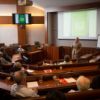
DEPARTMENT OF STATISTICS AND DATA SCIENCE
Phd program, phd program overview.
The doctoral program in Statistics and Data Science is designed to provide students with comprehensive training in theory and methodology in statistics and data science, and their applications to problems in a wide range of fields. The program is flexible and may be arranged to reflect students' interests and career goals. Cross-disciplinary work is encouraged. The PhD program prepares students for careers as university teachers and researchers and as research statisticians or data scientists in industry, government and the non-profit sector.
Requirements
Students are required to fulfill the Department requirements in addition to those specified by The Graduate School (TGS).
From the Graduate School’s webpage outlining the general requirements for a PhD :
In order to receive a doctoral degree, students must:
- Complete all required coursework. .
- Gain admittance to candidacy.
- Submit a prospectus to be approved by a faculty committee.
- Present a dissertation with original research. Review the Dissertation Publication page for more information.
- Complete the necessary teaching requirement
- Submit necessary forms to file for graduation
- Complete degree requirements within the approved timeline
PhD degrees must be approved by the student's academic program. Consult with your program directly regarding specific degree requirements.
The Department requires that students in the Statistics and Data Science PhD program:
- Meet the department minimum residency requirement of 2 years
- STAT 344-0 Statistical Computing
- STAT 350-0 Regression Analysis
- STAT 353-0 Advanced Regression (new 2021-22)
- STAT 415-0 I ntroduction to Machine Learning
- STAT 420-1,2,3 Introduction to Statistical Theory and Methodology 1, 2, 3
- STAT 430-1, STAT 430-2, STAT 440 (new courses in 2022-23 on probability and stochastic processes for statistics students)
- STAT 457-0 Applied Bayesian Inference
Students generally complete the required coursework during their first two years in the PhD program. *note that required courses changed in the 2021-22 academic year, previous required courses can be found at the end of this page.
- Pass the Qualifying Exam. This comprehensive examination covers basic topics in statistics and is typically taken in fall quarter of the second year.
Pass the Prospectus presentation/examination and be admitted for PhD candidacy by the end of year 3 . The statistics department requires that students must complete their Prospectus (proposal of dissertation topic) before the end of year 3, which is earlier than The Graduate School deadline of the end of year 4. The prospectus must be approved by a faculty committee comprised of a committee chair and a minimum of 2 other faculty members. Students usually first find an adviser through independent studies who will then typically serve as the committee chair. When necessary, exceptions may be made upon the approval of the committee chair and the director of graduate studies, to extend the due date of the prospectus exam until the end of year 4.
- Successfully complete and defend a doctoral dissertation. After the prospectus is approved, students begin work on the doctoral dissertation, which must demonstrate an original contribution to a chosen area of specialization. A final examination (thesis defense) is given based on the dissertation. Students typically complete the PhD program in 5 years.
- Attend all seminars in the department and participate in other research activities . In addition to these academic requirements, students are expected to participate in other research activities and attend all department seminars every year they are in the program.
Optional MS degree en route to PhD
Students admitted to the Statistics and Data Science PhD program can obtain an optional MS (Master of Science) degree en route to their PhD. The MS degree requires 12 courses: STAT 350-0 Regression Analysis, STAT 353 Advanced Regression, STAT 420-1,2,3 Introduction to Statistical Theory and Methodology 1, 2, 3, STAT 415-0 I ntroduction to Machine Learning , and at least 6 more courses approved by the department of which two must be 400 level STAT elective courses, no more than 3 can be non-STAT courses. For the optional MS degree, students must also pass the qualifying exam offered at the beginning of the second year at the MS level.
*Prior to 2021-2022, the course requirements for the PhD were:
- STAT 351-0 Design and Analysis of Experiments
- STAT 425 Sampling Theory and Applications
- MATH 450-1,2 Probability 1, 2 or MATH 450-1 Probability 1 and IEMS 460-1,2 Stochastic Processes 1, 2
- Six additional 300/400 graduate-level Statistics courses, at least two must be 400 -level

NYU Center for Data Science
Harnessing Data’s Potential for the World
PhD in Data Science
An NRT-sponsored program in Data Science
- Areas & Faculty
- Admission Requirements
- Medical School Track
- NRT FUTURE Program
Advances in computational speed and data availability, and the development of novel data analysis methods, have birthed a new field: data science. This new field requires a new type of researcher and actor: the rigorously trained, cross-disciplinary, and ethically responsible data scientist. Launched in Fall 2017, the pioneering CDS PhD Data Science program seeks to produce such researchers who are fluent in the emerging field of data science, and to develop a native environment for their education and training. The CDS PhD Data Science program has rapidly received widespread recognition and is considered among the top and most selective data science doctoral programs in the world. It has recently been recognized by the NSF through an NRT training grant.
The CDS PhD program model rigorously trains data scientists of the future who (1) develop methodology and harness statistical tools to find answers to questions that transcend the boundaries of traditional academic disciplines; (2) clearly communicate to extract crisp questions from big, heterogeneous, uncertain data; (3) effectively translate fundamental research insights into data science practice in the sciences, medicine, industry, and government; and (4) are aware of the ethical implications of their work.
Our programmatic mission is to nurture this new generation of data scientists, by designing and building a data science environment where methodological innovations are developed and translated successfully to domain applications, both scientific and social. Our vision is that combining fundamental research on the principles of data science with translational projects involving domain experts creates a virtuous cycle: Advances in data science methodology transform the process of discovery in the sciences, and enable effective data-driven governance in the public sector. At the same time, the demands of real-world translational projects will catalyze the creation of new data science methodologies. An essential ingredient of such methodologies is that they embed ethics and responsibility by design.
These objectives will be achieved by a combination of an innovative core curriculum, a novel data assistantship mechanism that provides training of skills transfer through rotations and internships, and communication and entrepreneurship modules. Students will be exposed to a wider range of fields than in more standard PhD programs while working with our interdisciplinary faculty. In particular, we are proud to offer a medical track for students eager to explore data science as applied to healthcare or to develop novel theoretical models stemming from medical questions.
In short, the CDS PhD Data Science program prepares students to become leaders in data science research and prepares them for outstanding careers in academia or industry. Successful candidates are guaranteed financial support in the form of tuition and a competitive stipend in the fall and spring semesters for up to five years.* We invite you to learn more through our webpage or by contacting [email protected] .
*The Ph.D. program also offers students the opportunity to pursue their study and research with Data Science faculty based at NYU Shanghai. With this opportunity, students generally complete their coursework in New York City before moving full-time to Shanghai for their research. For more information, please visit the NYU Shanghai Ph.D. page .
Statistics & Data Science
Dietrich college of humanities and social sciences, ph.d. programs, our ph.d. programs enable students to pursue a wide range of research opportunities, including constructing and implementing advanced methods of data analysis to address crucial cross-disciplinary questions, along with developing the fundamental theory that supports these methods..
Unique opportunities for our Ph.D. students include:
- We host four cross-disciplinary joint Ph.D. programs for students who want to specialize in machine learning , public policy , neuroscience , and the link between engineering and policy .
- Our faculty have deep involvement in a range of important, data-rich scientific collaborations, including in the areas of genetics, neuroscience, astronomy, and the social sciences. This allows students to have easy access to both the crucial questions in these fields, and to the data that can provide the answers.
- Students begin work on their Advanced Data Analysis Project in the second semester. This year-long, faculty/student collaboration, distinct from the thesis, provides an immediate intensive research experience.
- Carnegie Mellon is home to the first Machine Learning Department . Many of our faculty maintain joint appointments with this Department and they (and our students) have strong connections to this exciting and growing area of research.
The programs leading to the degree of Doctor of Philosophy in Statistics seek to strike a balance between theoretical and applied statistics. The Ph.D. program prepares students for university teaching and research careers, and for industrial and governmental positions involving research in new statistical methods. Four to five years are usually needed to complete all requirements for the Ph.D. degree.
These pages present the requirements for each of our Ph.D. programs.
The page "Core Ph.D. Requirements" lays out the requirements for all Ph.D. students, while each of the four joint programs are described under the Joint Ph.D. Degrees pages. Our Ph.D. students can also earn a Master of Science in Statistics as an intermediate step towards their ultimate goal.
Joint Ph.D. Programs
Statistics/machine learning, statistics/public policy, statistics/engineering and public policy, statistics/neural computation .
Ph.D. in Statistics
Our doctoral program in statistics gives future researchers preparation to teach and lead in academic and industry careers.
Program Description
Degree type.
approximately 5 years
The relatively new Ph.D. in Statistics strives to be an exemplar of graduate training in statistics. Students are exposed to cutting edge statistical methodology through the modern curriculum and have the opportunity to work with multiple faculty members to take a deeper dive into special topics, gain experience in working in interdisciplinary teams and learn research skills through flexible research electives. Graduates of our program are prepared to be leaders in statistics and machine learning in both academia and industry.
The Ph.D. in Statistics is expected to take approximately five years to complete, and students participate as full-time graduate students. Some students are able to finish the program in four years, but all admitted students are guaranteed five years of financial support.
Within our program, students learn from global leaders in statistics and data sciences and have:
20 credits of required courses in statistical theory and methods, computation, and applications
18 credits of research electives working with two or more faculty members, elective coursework (optional), and a guided reading course
Dissertation research
Coursework Timeline
Year 1: focus on core learning.
The first year consists of the core courses:
- SDS 384.2 Mathematical Statistics I
- SDS 383C Statistical Modeling I
- SDS 387 Linear Models
- SDS 384.11 Theoretical Statistics
- SDS 383D Statistical Modeling II
- SDS 386D Monte Carlo Methods
In addition to the core courses, students of the first year are expected to participate in SDS 190 Readings in Statistics. This class focuses on learning how to read scientific papers and how to grasp the main ideas, as well as on practicing presentations and getting familiar with important statistics literature.
At the end of the first year, students are expected to take a written preliminary exam. The examination has two purposes: to assess the student’s strengths and weaknesses and to determine whether the student should continue in the Ph.D. program. The exam covers the core material covered in the core courses and it consists of two parts: a 3-hour closed book in-class portion and a take-home applied statistics component. The in-class portion is scheduled at the end of the Spring Semester after final exams (usually late May). The take-home problem is distributed at the end of the in-class exam, with a due-time 24 hours later.
Year 2: Transitioning from Student to Researcher
In the second year of the program, students take the following courses totaling 9 credit hours each semester:
- Required: SDS 190 Readings in Statistics (1 credit hour)
- Required: SDS 389/489 Research Elective* (3 or 4 credit hours) in which the student engages in independent research under the guidance of a member of the Statistics Graduate Studies Committee
- One or more elective courses selected from approved electives ; and/or
- One or more sections of SDS 289/389/489 Research Elective* (2 to 4 credit hours) in which the student engages in independent research with a member(s) of the Statistics Graduate Studies Committee OR guided readings/self-study in an area of statistics or machine learning.
- Internship course (0 or 1 credit hour; for international students to obtain Curricular Practical Training; contact Graduate Coordinator for appropriate course options)
- GRS 097 Teaching Assistant Fundamentals or NSC 088L Introduction to Evidence-Based Teaching (0 credit hours; for TA and AI preparation)
* Research electives allow students to explore different advising possibilities by working for a semester with a particular professor. These projects can also serve as the beginning of a dissertation research path. No more than six credit hours of research electives can be taken with a single faculty member in a semester.
Year 3: Advance to Candidacy
Students are encouraged to attend conferences, give presentations, as well as to develop their dissertation research. At the end of the second year or during their third year, students are expected to present their plan of study for the dissertation in an Oral candidacy exam. During this exam, students should demonstrate their research proficiency to their Ph.D. committee members. Students who successfully complete the candidacy exam can apply for admission to candidacy for the Ph.D. once they have completed their required coursework and satisfied departmental requirements. The steps to advance to candidacy are:
- Discuss potential candidacy exam topics with advisor
- Propose Ph.D. committee: the proposed committee must follow the Graduate School and departmental regulations on committee membership for what will become the Ph.D. Dissertation Committee
- Application for candidacy
Year 4+: Dissertation Completion and Defense
Students are encouraged to attend conferences, give presentations, as well as to develop their dissertation research. Moreover, they are expected to present part of their work in the framework of the department's Ph.D. poster session.
Students who are admitted to candidacy will be expected to complete and defend their Ph.D. thesis before their Ph.D. committee to be awarded the degree. The final examination, which is oral, is administered only after all coursework, research and dissertation requirements have been fulfilled. It is expected that students will be prepared to defend by the end of their fifth year in the doctoral program.
General Information and Expectations for All Ph.D. students
- 2023-24 Student Handbook
- Annual Review At the end of every year (due May 1), students are expected to fill out the Annual Progress Review .
- Seminar Series All students are expected to attend the SDS Seminar Series
- SDS 189R Course Description (when taken for internship)
- Internship Course Registration form
- Intel Corporation
- Berry Consultants
Attending Conferences
Students are encouraged to attend conferences to share their work. All research-related travel while in student status require prior authorization.
- Request for Travel Authorization (both domestic and international travel)
- Request for Authorization for International Travel

Department of Statistics and Data Science
Graduate programs.
The Department offers several graduate programs, one leading to the new Ph.D. degree in Statistics and Data Science, two leading to an M.A. degree in Statistics, and one leading to an M.S. degree in Statistics and Data Science.
The programs are administered in different ways, even though they share many courses. Unlike at some universities, there is no automatic admission into the Ph.D. program for students who complete the terminal M.A./M.S. degrees; a completely new application is required.
- The Ph.D. program in Statistics and Data Science
- The terminal M.A. and M.S. program s in Statistics/Statistics and Data Science, which are open to students not already enrolled at Yale.
- The M.A. en route to a Ph.D., which is for students already enrolled in a Yale Ph.D. program.
Ph.D. Specialization in Data Science
The ph.d. specialization in data science is an option within the applied mathematics, computer science, electrical engineering, industrial engineering and operations research, and statistics departments..
Only students already enrolled in one of these doctoral programs at Columbia are eligible to participate in this specialization. Students should fulfill the requirements below in addition to those of their respective department's Ph.D. program. Students should discuss this specialization option with their Ph.D. advisor and their department's director for graduate studies.
Applied Mathematics Doctoral Program
Computer Science Doctoral Program
Decision, Risk, and Operations (DRO) Program
Electrical Engineering Doctoral Program
Industrial Engineering and Operations Research Doctoral Program
Statistics Doctoral Program
The specialization consists of either five (5) courses from the lists below, or four (4) courses plus one (1) additional course approved by the curriculum committee. All courses must be taken for a letter grade and students must pass with a B+ or above. At least three (3) of the courses should come from outside the student’s home department. At least one (1) course has to come from each of the three (3) thematic areas listed below.
Specialization Requirements
- COMS 4231 Analysis of Algorithms I
- COMS 6232 Analysis of Algorithms II
- COMS 4111 Introduction to Databases
- COMS 4113 Distributed Systems Fundamentals
- EECS 6720 Bayesian Models for Machine Learning
- COMS 4771 Machine Learning
- COMS 4772 Advanced Machine Learning
- IEOR E6613 Optimization I
- IEOR E6614 Optimization II
- IEOR E6711 Stochastic Modeling I
- EEOR E6616 Convex Optimization
- STAT 6301 Probability Theory I
- STAT 6201 Theoretical Statistics I
- STAT 6101 Applied Statistics I
- STAT 6104 Computational Statistics
- STAT 5224 Bayesian Statistics
- STCS 6701 Foundations of Graphical Models (joint with Computer Science)
Information Request Form
Ph.d. specialization committee.
- View All People
- Faculty of Arts and Sciences Professor of Statistics
- The Fu Foundation School of Engineering and Applied Science Professor of Computer Science
Richard A. Davis
- Faculty of Arts and Sciences Howard Levene Professor of Statistics
Vineet Goyal
- The Fu Foundation School of Engineering and Applied Science Associate Professor of Industrial Engineering and Operations Research
Garud N. Iyengar
- The Fu Foundation School of Engineering and Applied Science Vice Dean of Research
- Tang Family Professor of Industrial Engineering and Operations Research
Gail Kaiser
Rocco a. servedio, clifford stein.
- Data Science Institute Interim Director
- The Fu Foundation School of Engineering and Applied Science Wai T. Chang Professor of Industrial Engineering and Operations Research and Professor of Computer Science

John Wright
- The Fu Foundation School of Engineering and Applied Science Associate Professor of Electrical Engineering
- Data Science Institute Associate Director for Academic Affairs
Doctoral Program
Program summary.
Students are required to
- master the material in the prerequisite courses ;
- pass the first-year core program;
- attempt all three parts of the qualifying examinations and show acceptable performance in at least two of them (end of 1st year);
- satisfy the depth and breadth requirements (2nd/3rd/4th year);
- successfully complete the thesis proposal meeting (winter quarter of the 3rd year);
- present a draft of their dissertation and pass the university oral examination (4th/5th year).
The PhD requires a minimum of 135 units. Students are required to take a minimum of nine units of advanced topics courses (for depth) offered by the department (not including literature, research, consulting or Year 1 coursework), and a minimum of nine units outside of the Statistics Department (for breadth). Courses for the depth and breadth requirements must equal a combined minimum of 24 units. In addition, students must enroll in STATS 390 Statistical Consulting, taking it at least twice.
All students who have passed the qualifying exams but have not yet passed the Thesis Proposal Meeting must take STATS 319 at least once each year. For example, a student taking the qualifying exams in the summer after Year 1 and having the dissertation proposal meeting in Year 3, would take 319 in Years 2 and 3. Students in their second year are strongly encouraged to take STATS 399 with at least one faculty member. All details of program requirements can be found in our PhD handbook (available to Stanford affiliates only, using Stanford authentication. Requests for access from non-affiliates will not be approved).
Statistics Department PhD Handbook
All students are expected to abide by the Honor Code and the Fundamental Standard .
Doctoral and Research Advisors
During the first two years of the program, students' academic progress is monitored by the department's Graduate Director. Each student should meet at least once a quarter with the Graduate Director to discuss their academic plans and their progress towards choosing a thesis advisor (before the final study list deadline of spring of the second year). From the third year onward students are advised by their selected advisor.
Qualifying Examinations
Qualifying examinations are part of most PhD programs in the United States. At Stanford these exams are intended to test the student's level of knowledge when the first-year program, common to all students, has been completed. There are separate examinations in the three core subjects of statistical theory and methods, applied statistics, and probability theory, which are typically taken during the summer at the end of the student's first year. Students are expected to attempt all three examinations and show acceptable performance in at least two of them. Letter grades are not given. Qualifying exams may be taken only once. After passing the qualifying exams, students must file for Ph.D. Candidacy, a university milestone, by the end of spring quarter of their second year.
While nearly all students pass the qualifying examinations, those who do not can arrange to have their financial support continued for up to three quarters while alternative plans are made. Usually students are able to complete the requirements for the M.S. degree in Statistics in two years or less, whether or not they have passed the PhD qualifying exams.
Thesis Proposal Meeting and Dissertation Reading Committee
The thesis proposal meeting is intended to demonstrate a student's depth in some areas of statistics, and to examine the general plan for their research. In the meeting the student gives a 60-minute presentation involving ideas developed to date and plans for completing a PhD dissertation, and for another 60 minutes answers questions posed by the committee. which consists of their advisor and two other members. The meeting must be successfully completed by the end of winter quarter of the third year. If a student does not pass, the exam must be repeated. Repeated failure can lead to a loss of financial support.
The Dissertation Reading Committee consists of the student’s advisor plus two faculty readers, all of whom are responsible for reading the full dissertation. Of these three, at least two must be members of the Statistics Department (faculty with a full or joint appointment in Statistics but excluding for this purpose those with only a courtesy or adjunct appointment). Normally, all committee members are members of the Stanford University Academic Council or are emeritus Academic Council members; the principal dissertation advisor must be an Academic Council member.
The Doctoral Dissertation Reading Committee form should be completed and signed at the Dissertation Proposal Meeting. The form must be submitted before approval of TGR status or before scheduling a University Oral Examination.
For further information on the Dissertation Reading Committee, please see the Graduate Academic Policies and Procedures (GAP) Handbook section 4.8.
University Oral Examinations
The oral examination consists of a public, approximately 60-minute, presentation on the thesis topic, followed by a 60 minute question and answer period attended only by members of the examining committee. The questions relate to the student's presentation and also explore the student's familiarity with broader statistical topics related to the thesis research. The oral examination is normally completed during the last few months of the student's PhD period. The examining committee typically consists of four faculty members from the Statistics Department and a fifth faculty member from outside the department serving as the committee chair. Four out of five passing votes are required and no grades are given. Nearly all students can expect to pass this examination, although it is common for specific recommendations to be made regarding completion of the thesis.
The Dissertation Reading Committee must also read and approve the thesis.
For further information on university oral examinations and committees, please see the Graduate Academic Policies and Procedures (GAP) Handbook section 4.7 .
Dissertation
The dissertation is the capstone of the PhD degree. It is expected to be an original piece of work of publishable quality. The research advisor and two additional faculty members constitute the student's dissertation reading committee.
- Diversity & Inclusion
- Community Values
- Visiting MIT Physics
- People Directory
- Faculty Awards
- History of MIT Physics
- Policies and Procedures
- Departmental Committees
- Academic Programs Team
- Finance Team
- Meet the Academic Programs Team
- Prospective Students
- Requirements
- Employment Opportunities
- Research Opportunities
- Graduate Admissions
- Doctoral Guidelines
- Financial Support
- Graduate Student Resources
PhD in Physics, Statistics, and Data Science
- MIT LEAPS Program
- for Undergraduate Students
- for Graduate Students
- Mentoring Programs Info for Faculty
- Non-degree Programs
- Student Awards & Honors
- Astrophysics Observation, Instrumentation, and Experiment
- Astrophysics Theory
- Atomic Physics
- Condensed Matter Experiment
- Condensed Matter Theory
- High Energy and Particle Theory
- Nuclear Physics Experiment
- Particle Physics Experiment
- Quantum Gravity and Field Theory
- Quantum Information Science
- Strong Interactions and Nuclear Theory
- Center for Theoretical Physics
- Affiliated Labs & Centers
- Program Founder
- Competition
- Donor Profiles
- Patrons of Physics Fellows Society
- Giving Opportunties
- physics@mit Journal: Fall 2023 Edition
- Events Calendar
- Physics Colloquia
- Search for: Search
Many PhD students in the MIT Physics Department incorporate probability, statistics, computation, and data analysis into their research. These techniques are becoming increasingly important for both experimental and theoretical Physics research, with ever-growing datasets, more sophisticated physics simulations, and the development of cutting-edge machine learning tools. The Interdisciplinary Doctoral Program in Statistics (IDPS) is designed to provide students with the highest level of competency in 21st century statistics, enabling doctoral students across MIT to better integrate computation and data analysis into their PhD thesis research.
Admission to this program is restricted to students currently enrolled in the Physics doctoral program or another participating MIT doctoral program. In addition to satisfying all of the requirements of the Physics PhD, students take one subject each in probability, statistics, computation and statistics, and data analysis, as well as the Doctoral Seminar in Statistics, and they write a dissertation in Physics utilizing statistical methods. Graduates of the program will receive their doctoral degree in the field of “Physics, Statistics, and Data Science.”
Doctoral students in Physics may submit an Interdisciplinary PhD in Statistics Form between the end of their second semester and penultimate semester in their Physics program. The application must include an endorsement from the student’s advisor, an up-to-date CV, current transcript, and a 1-2 page statement of interest in Statistics and Data Science.
The statement of interest can be based on the student’s thesis proposal for the Physics Department, but it must demonstrate that statistical methods will be used in a substantial way in the proposed research. In their statement, applicants are encouraged to explain how specific statistical techniques would be applied in their research. Applicants should further highlight ways that their proposed research might advance the use of statistics and data science, both in their physics subfield and potentially in other disciplines. If the work is part of a larger collaborative effort, the applicant should focus on their personal contributions.
For access to the selection form or for further information, please contact the IDSS Academic Office at [email protected] .
Required Courses
Courses in this list that satisfy the Physics PhD degree requirements can count for both programs. Other similar or more advanced courses can count towards the “Computation & Statistics” and “Data Analysis” requirements, with permission from the program co-chairs. The IDS.190 requirement may be satisfied instead by IDS.955 Practical Experience in Data, Systems, and Society, if that experience exposes the student to a diverse set of topics in statistics and data science. Making this substitution requires permission from the program co-chairs prior to doing the practical experience.
- IDS.190 – Doctoral Seminar in Statistics and Data Science ( may be substituted by IDS.955 Practical Experience in Data, Systems and Society )
- 6.7700[J] Fundamentals of Probability or
- 18.675 – Theory of Probability
- 18.655 – Mathematical Statistics or
- 18.6501 – Fundamentals of Statistics or
- IDS.160[J] – Mathematical Statistics: A Non-Asymptotic Approach
- 6.C01/6.C51 – Modeling with Machine Learning: From Algorithms to Applications or
- 6.7810 Algorithms for Inference or
- 6.8610 (6.864) Advanced Natural Language Processing or
- 6.7900 (6.867) Machine Learning or
- 6.8710 (6.874) Computational Systems Biology: Deep Learning in the Life Sciences or
- 9.520[J] – Statistical Learning Theory and Applications or
- 16.940 – Numerical Methods for Stochastic Modeling and Inference or
- 18.337 – Numerical Computing and Interactive Software
- 8.316 – Data Science in Physics or
- 6.8300 (6.869) Advances in Computer Vision or
- 8.334 – Statistical Mechanics II or
- 8.371[J] – Quantum Information Science or
- 8.591[J] – Systems Biology or
- 8.592[J] – Statistical Physics in Biology or
- 8.942 – Cosmology or
- 9.583 – Functional MRI: Data Acquisition and Analysis or
- 16.456[J] – Biomedical Signal and Image Processing or
- 18.367 – Waves and Imaging or
- IDS.131[J] – Statistics, Computation, and Applications
Grade Policy
C, D, F, and O grades are unacceptable. Students should not earn more B grades than A grades, reflected by a PhysSDS GPA of ≥ 4.5. Students may be required to retake subjects graded B or lower, although generally one B grade will be tolerated.
Unless approved by the PhysSDS co-chairs, a minimum grade of B+ is required in all 12 unit courses, except IDS.190 (3 units) which requires a P grade.
Though not required, it is strongly encouraged for a member of the MIT Statistics and Data Science Center (SDSC) to serve on a student’s doctoral committee. This could be an SDSC member from the Physics department or from another field relevant to the proposed thesis research.
Thesis Proposal
All students must submit a thesis proposal using the standard Physics format. Dissertation research must involve the utilization of statistical methods in a substantial way.
PhysSDS Committee
- Jesse Thaler (co-chair)
- Mike Williams (co-chair)
- Isaac Chuang
- Janet Conrad
- William Detmold
- Philip Harris
- Jacqueline Hewitt
- Kiyoshi Masui
- Leonid Mirny
- Christoph Paus
- Phiala Shanahan
- Marin Soljačić
- Washington Taylor
- Max Tegmark
Can I satisfy the requirements with courses taken at Harvard?
Harvard CompSci 181 will count as the equivalent of MIT’s 6.867. For the status of other courses, please contact the program co-chairs.
Can a course count both for the Physics degree requirements and the PhysSDS requirements?
Yes, this is possible, as long as the courses are already on the approved list of requirements. E.g. 8.592 can count as a breadth requirement for a NUPAX student as well as a Data Analysis requirement for the PhysSDS degree.
If I have previous experience in Probability and/or Statistics, can I test out of these requirements?
These courses are required by all of the IDPS degrees. They are meant to ensure that all students obtaining an IDPS degree share the same solid grounding in these fundamentals, and to help build a community of IDPS students across the various disciplines. Only in exceptional cases might it be possible to substitute more advanced courses in these areas.
Can I substitute a similar or more advanced course for the PhysSDS requirements?
Yes, this is possible for the “computation and statistics” and “data analysis” requirements, with permission of program co-chairs. Substitutions for the “probability” and “statistics” requirements will only be granted in exceptional cases.
For Spring 2021, the following course has been approved as a substitution for the “computation and statistics” requirement: 18.408 (Theoretical Foundations for Deep Learning) .
The following course has been approved as a substitution for the “data analysis” requirement: 6.481 (Introduction to Statistical Data Analysis) .
Can I apply for the PhysSDS degree in my last semester at MIT?
No, you must apply no later than your penultimate semester.
What does it mean to use statistical methods in a “substantial way” in one’s thesis?
The ideal case is that one’s thesis advances statistics research independent of the Physics applications. Advancing the use of statistical methods in one’s subfield of Physics would also qualify. Applying well-established statistical methods in one’s thesis could qualify, if the application is central to the Physics result. In all cases, we expect the student to demonstrate mastery of statistics and data science.

Ph.D. Program
Advising The vice chair for graduate studies is the chief graduate adviser and heads a committee of faculty advisers who may serve as academic advisers. The research interests of the members of this committee span most of the major areas of statistics. During their first quarter in the program students are required to meet with an academic adviser who assists them in planning a reasonable course of study. In addition, the academic adviser is responsible for monitoring the student’s degree progress and approving the study list each quarter. Students are encouraged to begin thinking about their research interests as early as possible. After the student identifies a dissertation topic, the chair of the dissertation committee becomes the student’s academic adviser.
Continuing students should meet with either the vice chair for graduate studies or their academic adviser at least once each quarter and a record of this interview is placed in the student’s academic file. Each fall a committee consisting of all regular departmental faculty meet to evaluate the progress of all enrolled doctoral students. This committee decides if students are making satisfactory progress, and if not offers specific recommendations to correct the situation. For students who have begun dissertation work, the determination of satisfactory progress is typically delegated to the academic adviser. Students who are found to be consistently performing unsatisfactorily may be recommended for termination by a vote of this committee. Doctoral students normally are considered to be making satisfactory progress if they take the written qualifying examination in the summer following their first year of study and the University Oral Qualifying Examination by the end of their second year.
Major Fields or Sub-disciplines The strengths of current and prospective faculty dictate the specific fields of emphasis in the department: applied multivariate analysis; bioinformatics ( Center for Statistical Research in Computational Biology ); computational and computer-intensive statistics; computer vision; cognition; artificial intelligence; machine learning ( Center for Vision, Cognition, Learning, and Autonomy ); social statistics ( Center for Social Statistics ); experimental design and environmental statistics.
Foreign Language Requirement None.
Course Requirements Students are required to pass, with a grade of B- or better, 54 units of approved graduate course work (200 series) and to maintain an overall grade-point average of 3.0 or better. At least 40 of these units must be in courses from this department; the remaining units may be from courses in related departments. Students are strongly encouraged to take Statistics 200A-200B-200C, 201A-201B-201C, and 202A-202B-202C. All doctoral students are required to take Statistics 290 for at least six quarters, and strongly encouraged to take Stats 290 during each quarter of enrollment. In addition, all doctoral students can take Statistics 296 and/or 596, or 599 as needed. Please note that up to two units of Statistics 285 and eight units of Statistics 596 can be counted toward the 40 units from our department. Stats 290, 296, and 599 are not counted.
Students with gaps in their previous training are allowed to take, with the approval of their academic adviser, undergraduate courses offered by the department. However, Statistics 100A-100B-100C, 101A-101B-101C and 102A-102B-102C may not be applied toward course requirements for a graduate degree in the department. Students who need a basic refresher course are encouraged to take Statistics 100A-100B-100C.
Teaching Experience Students are required to complete at least one quarter of service as a teaching assistant for a minimum of 25% time appointment. Students who serve as teaching assistants in the department must have taken or be currently enrolled in Statistics 495A-495B-495C. International students for whom English is a second language must pass either the Test of Spoken English (TSE) or the UCLA Test of Oral Proficiency (TOP) in English before they may serve as teaching assistants.
Written and Oral Qualifying Examinations Academic Senate regulations require all doctoral students to complete and pass university written and oral qualifying examinations prior to doctoral advancement to candidacy. Also, under Senate regulations, the University Oral Qualifying Examination is open only to the student and appointed members of the doctoral committee. In addition to university requirements, some graduate programs have other pre-candidacy examination requirements. What follows in this section is how students are required to fulfill all of these requirements for this doctoral program.
All committee nominations and reconstitutions adhere to the Minimum Standards for Doctoral Committee Constitution.
The written qualifying examination consists of a high-quality paper, solely authorized by the student. This paper can be a research paper containing an original contribution, or a focused critical survey paper. The paper should demonstrate that the student understands and can integrate and communicate ideas clearly and concisely. The paper should be approximately 10 pages, single-spaced, and the style should be suitable for submission to a first-rate journal or technical conference. Any contributions that are not the student’s, including those of the student’s adviser, must be explicitly acknowledged in detail.
After passing the written qualifying examination, students select a doctoral committee that administers the University Oral Qualifying Examination, required for advancement to candidacy. Students are encouraged to begin thinking about their research interests as early as possible and to seek out faculty members who might serve on their doctoral committee. Students making satisfactory progress are expected to take the written qualifying examination in the summer following their first year of study and the University Oral Qualifying Examination by the end of their second year.
Advancement to Candidacy Students are advanced to candidacy and awarded the Candidate in Philosophy (C.Phil.) degree upon successful completion of the written and oral qualifying examinations.
Doctoral Dissertation Every doctoral degree program requires the completion of an approved dissertation that demonstrates the student’s ability to perform original, independent research and constitutes a distinct contribution to knowledge in the principal field of study.
Final Oral Examination (Defense of the Dissertation) Required for all students in the program. Please see the Advice on Taking the Oral Exam for more information.
Time-to-Degree Students are expected to advance to candidacy for the Ph.D. degree within six quarters of full-time work. Completion of all degree requirements (including the dissertation) normally takes 15 quarters. The maximum time to degree is 24 quarters.
Termination of Graduate Study and Appeal of Termination
University Policy
A student who fails to meet the above requirements may be recommended for termination of graduate study. A graduate student may be disqualified from continuing in the graduate program for a variety of reasons. The most common is failure to maintain the minimum cumulative grade point average (3.00) required by the Academic Senate to remain in good standing (some programs require a higher grade point average). Other examples include failure of examinations, lack of timely progress toward the degree and poor performance in core courses. Probationary students (those with cumulative grade point averages below 3.00) are subject to immediate dismissal upon the recommendation of their department. University guidelines governing termination of graduate students, including the appeal procedure, are outlined in Standards and Procedures for Graduate Study at UCLA.
Special Departmental or Program Policy for the Ph.D. Program
A student who does not advance to doctoral candidacy within six quarters of full-time study is subject to a recommendation for termination. The graduate vice chair informs a student of such a recommendation and the student is asked to submit a written appeal and to solicit letters of support from members of the faculty. The appeal is considered by the Graduate Studies Committee, which makes the final departmental decision.
For Students Who Entered Before Fall 2022 Please click this link . Then navigate to “Program Requirements” in the tab that opens and select the academic year when you matriculated.
Timeline to Filing Your Dissertation
- By Fall of your 2nd year, choose your Faculty Adviser and discuss with your faculty adviser who will be on your committee.
- Complete and submit the Nomination of Doctoral Committee Form at least one month before you take your orals.
- Contact Student Affairs to schedule a time and date to take your orals. Confirm the time and date with your committee.
- Your Adviser will let you know when you are ready to take your final orals and submit your dissertation online. When that time comes, arrange time, date and location with the student affairs office.
- If you still need more time and after you’ve advanced choose to do a Filing Fee instead please read this website carefully: https://grad.ucla.edu/academics/graduate-study/filing-fee-application/
- You must also complete the Filing Fee application found here: https://grad.ucla.edu/gasaa/etd/filingfee.pdf
- Important dates and workshops are found here: https://grad.ucla.edu/academics/calendar/thesis-dissertation-filing-deadlines-and-workshops/
- Should you choose the Filing Fee for a specific quarter, you must be registered and enrolled the quarter before AND you must submit a complete first draft of your dissertation to all committee members at the time you submit your filing fee application (in order to apply the filing fee, students must be registered and enrolled in at least 2 units the quarter before).
Faculty Research Interest See the faculty directory listing for current members and their interests at http://directory.stat.ucla.edu/ .
MicroMasters Program in Statistics and Data Science
From probability and statistics to data analysis and machine learning, master the skills needed to solve complex challenges with data.
About the Program
Demand for professionals skilled in data, analytics, and machine learning is exploding. The U.S. Bureau of Labor Statistics reports that demand for data science skills will drive a 27.9 percent rise in employment in the field through 2026. Data scientists bring value to organizations across industries because they are able to solve complex challenges with data and drive important decision-making processes. Not only is there a huge demand, but there is a significant shortage of qualified data scientists with 39% of the most rigorous data science positions requiring a degree higher than a bachelor’s.
This MicroMasters® program in Statistics and Data Science (SDS) was developed by MITx and the MIT Institute for Data, Systems, and Society (IDSS) . It is a multidisciplinary approach comprised of four online courses and a virtually proctored exam that will provide you with the foundational knowledge essential to understanding the methods and tools used in data science, and hands-on training in data analysis and machine learning. You will dive into the fundamentals of probability and statistics, as well as learn, implement, and experiment with data analysis techniques and machine learning algorithms. This program will prepare you to become an informed and effective practitioner of data science who adds value to an organization.
To complete the SDS MicroMasters program, learners will need to take the three core courses and one out of two electives. Once learners have passed their four courses, they will then take the virtually-proctored Capstone exam to earn the MicroMasters program credential in SDS. The credential can be applied, for admitted students, towards a Ph.D. in Social and Engineering Systems (SES) through the MIT Institute for Data, Systems, and Society (IDSS) or may accelerate your path towards a Master’s degree at other universities around the world.
Anyone can enroll in this MicroMasters program. It is designed for learners who want to acquire sophisticated and rigorous training in data science without leaving their day job but without compromising quality. There is no application process, but college-level calculus and comfort with mathematical reasoning and Python programming are highly recommended if you want to excel.
All the courses of this program are taught by MIT faculty and administered by Institute for Data, Systems, and Society (IDSS), at a similar pace and level of rigor as an on-campus course at MIT. This program brings MIT’s rigorous, high-quality curricula and hands-on learning approach to learners around the world—at scale.
What You'll Learn
- Master the foundations of data science, statistics, and machine learning
- Analyze big data and make data-driven predictions through probabilistic modeling and statistical inference; identify and deploy appropriate modeling and methodologies in order to extract meaningful information for decision making
- Develop and build machine learning algorithms to extract meaningful information from seemingly unstructured data; learn popular unsupervised learning methods, including clustering methodologies and supervised methods such as deep neural networks
- Master techniques in modern data analysis to leverage big datasets; use python and R skillfully to analyze data
Job Outlook
- A recent report by IBM and Burning Glass states that there will be 364K new job openings in data-driven professions by 2020 in the US
- Out of those jobs, the toughest to fill are the Data Scientist/Advanced Analytics positions
- 39% of these positions require a degree higher than a bachelor’s
- By completing this MicroMasters program you will be able to solve complex challenges with data and drive decision-making processes for organizations
- Finishing this MicroMasters program will prepare you for job titles such as: Data Scientist, Data Analyst, Business Intelligence Analyst, Systems Analyst, Data Engineer
MIT Institute for Data, Systems, and Society
2023 Annual Course Schedule
2024 Annual Course Schedule
What Learners are Saying
Contact us: [email protected]
Courses delivered on
Instructors


- Youth Program
- Wharton Online
Doctoral Curriculum
This program is designed for students who desire academic research careers. The foundation is a sequence of courses in probability, mathematical statistics, linear models and statistical computing. The program also encourages study in a cognate area of application.
Up to four courses per semester may be counted toward the overall requirement of 13 courses. The six core courses are usually taken in the first year.
Electives must include suitable courses numbered 9000 and above, when offered.
More advanced students choose from among various elective courses offered by the faculty of the Statistics and Data Science Department and other departments at the University. There is also considerable opportunity to take individually-structured reading courses with faculty in the department.
Student Involvement in the Department
In addition to formal coursework, the student is expected to participate in the informal intellectual life of the Department of Statistics and Data Science. This includes attendance at departmental colloquia, where visiting speakers describe current research, plus participation in informal seminars investigating current topics of interest in a non-course setting.
Department of Statistics and Data Science
The Wharton School, University of Pennsylvania Academic Research Building 265 South 37th Street, 3rd & 4th Floors Philadelphia, PA 19104-1686
Phone: (215) 898-8222
PhD Program
- Contact Information
- Course Descriptions
- Course Schedule
- Doctoral Inside: Resources for Current PhD Students
- Penn Career Services
- Apply to Wharton
- Financial Aid
- William Bekerman , PhD Student
- Jinho Bok , PhD Student
- Katherine Brumberg , PhD Student
- Abhinav Chakraborty , PhD Student
- Patrick Chao , PhD Student
- Anirban Chatterjee , PhD Student
- Sayak Chatterjee , PhD Student
- Abhinandan Dalal , PhD Student
- Mauricio Daros Andrade , PhD Student
- Joseph Deutsch , PhD Student
- Wei Fan , PhD Student
- Zirui Fan , PhD Student
- Ryan Gross , PhD Student
- Yu Huang , PhD Student
- Zhihan Huang , PhD Student
- Kevin Jiang , PhD Student
- Dongwoo Kim , PhD Student
- Junu Lee , PhD Student
- Chris Lin , PhD Student
- Yuxuan Lin , PhD Student
- Kaishu Mason , PhD Student
- Sagnik Nandy , PhD Student
- Ziang Niu , PhD Student
- Manit Paul , PhD Student
- Joseph Rudoler , PhD Student
- Henry Shugart , PhD Student
- Kevin Tan , PhD Student
- Hwai-Liang Tung , PhD Student
- Xiaomeng Wang , PhD Student
- Yangxinyu Xie , PhD Student
- Ziqing Xu , PhD Student
- Yachong Yang , PhD Student
- Jeffrey Zhang , PhD Student
- Zhaojun Zhang , PhD Student
- Zijie Zhuang , PhD Student
- Request Info
- Check Status
Applied Statistics PhD
Doctoral Program
The PhD in Applied Statistics addresses the growing demand in a wide range of fields for individuals with doctoral training in statistical theory and methodology who can apply statistical methods to solve business problems.
Start Your Bold Future
By submitting this form, I agree that UTSA may contact me by email, voice, pre-recorded message and/or text message using automated technology.
Please enable javascript in your browser
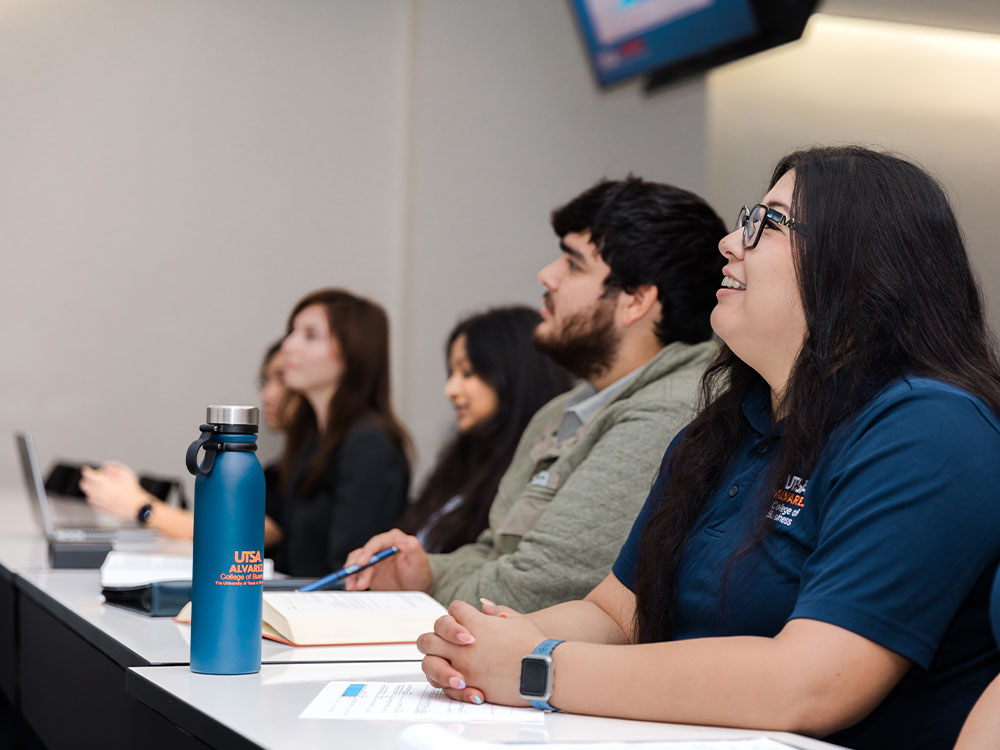
Why Pursue a PhD in Applied Statistics
With constant technological advancement, the need for individuals who can design experiments and analyze large, complex data sets with the latest tools and technology continues to grow.
The demand for statisticians is high, especially for individuals trained to analyze big data in the areas of biomedical development, fraud detection, cyber security and defense-related issues. Job opportunities exist in a variety of industries including education, energy, finance, government, healthcare, insurance and manufacturing .

Research Opportunities
Research is carried out while students are taking formal coursework and during the summers. As research assistants, students are involved with faculty in joint research activities and pursue their own research objectives under faculty supervision. These activities should lead to authoring or co-authoring papers presented at academic meetings and possibly submitted for publication by the time the student is ready for dissertation research. (To compete successfully in the job market, students should give high priority to presenting papers at meetings and publications while in the program.)
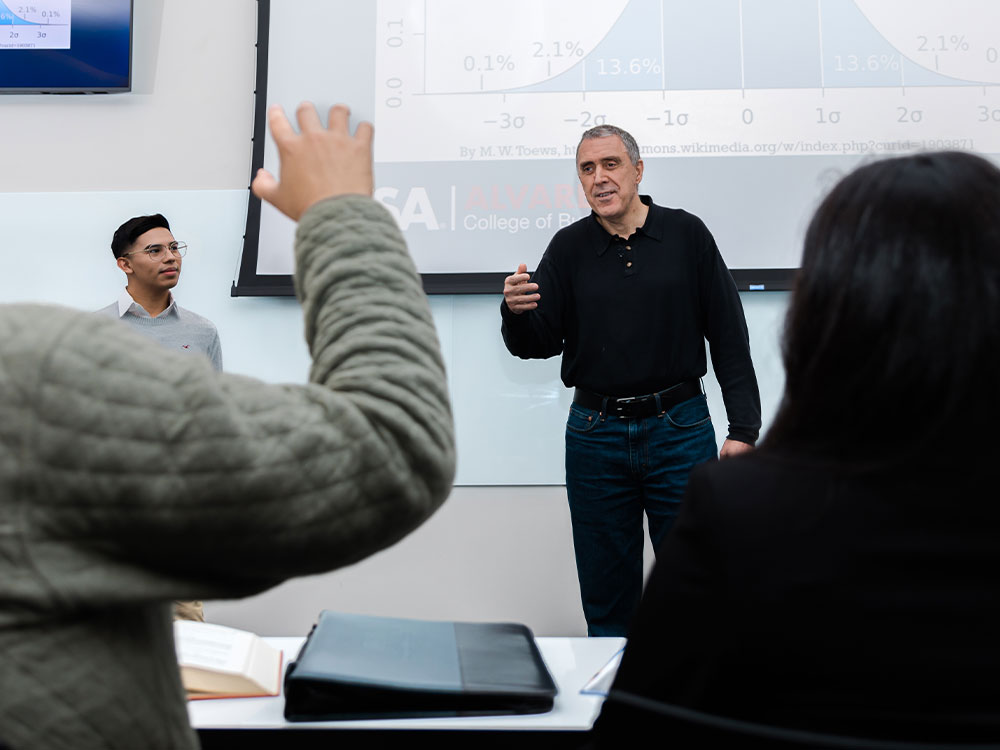
Careers in Higher Education and Research
The primary focus of a doctoral program is to prepare qualified candidates for careers in higher education, teaching, and research. Data predicts a strong demand for business school faculty for the next 15 years. Becoming a university faculty member is a gratifying experience that offers collaboration with students and other faculty, as well as fair compensation.
Outside of academia, Statisticians are in high demand in the growing biomedical field to develop methods for evaluating the efficacy and safety of new medications, surgeries, and other treatments. Additionally, Statisticians are conducting cutting-edge Bioinformatics research to assess topics such as gene therapy, genomics research, aging, and many other newly developed issues.

Register for an Info Session
Interested in learning more about UTSA’s Carlos Alvarez College of Business Applied Statistics PhD program? Register to attend an upcoming Information Session where you’ll have the opportunity to review application procedures, learn admissions requirements and ask questions.
- Admission Requirements
Application Deadlines
Funding opportunities, career options, admission & application requirements.
Applications are submitted through the UTSA Graduate Application . Please upload all required documents (listed below) on your UTSA Graduate Application. It is the applicant’s responsibility to ensure completion and submission of the application, a nonrefundable application fee, and all required supporting documents are on file with UTSA by the appropriate application deadline.
Applicants are encouraged to have their admission file completed as early as possible. All applications, required documents and letters of recommendation, if applicable, must be submitted by 5:00 PM U.S. Central Time on the day of the deadline. Deadlines are subject to change.
PhD’s are generally funded with our financial package which consists of an assistantship in the form of a research or teaching assistantship with paid tuition and fees for up to four (4) years.
For more information about graduate funding, click below.
UTSA prepares you for future careers that are in demand. The possible careers below is data pulled by a third-party tool called Emsi, which pulls information from sources like the U.S. Bureau of Labor Statistics, U.S. Census Bureau, online job postings, other government databases and more to give you regional and national career outlook related to this academic program.
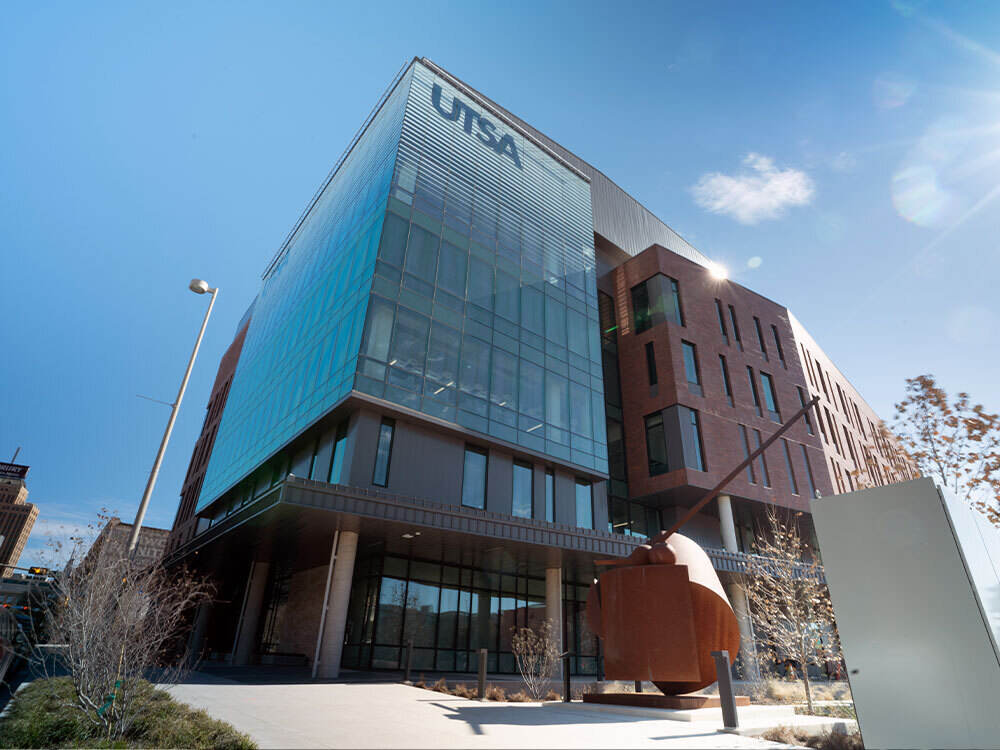
School of Data Science
This program is part of the School of Data Science, also known as San Pedro I, and is housed in a cutting-edge facility dedicated to advancing the field of data science and fostering innovation in data-driven research and education. San Pedro I is a state-of-the-art facility specifically designed for hands-on learning and research under renowned faculty with expertise in data science, machine learning, artificial intelligence, and more. The School of Data Science is committed to providing a world-class education that equips students with the knowledge, skills, and career opportunities needed to thrive in the rapidly evolving data landscape.
Earning a Master's Degree
While in a doctoral program, a student may earn a master’s degree provided the following conditions are satisfied:
- A student must be admitted to candidacy.
- A student is eligible to receive a master’s degree upon completion of University-wide requirements and any additional degree requirements specific to the program.
- The Doctoral Studies Committee, Department Chair, and the Graduate Associate Dean of the College must recommend students for the degree.
- The student must apply for graduation by the published deadline the semester prior to awarding the doctoral degree.
- All required coursework in the doctoral program at the time of admission to candidacy must have been taken within the previous six years.
- If the master’s degree requires a thesis, the degree cannot be awarded on the basis of the doctoral qualifying examination.
- Students will not be approved for an additional master’s degree in the same field in which an individual has previously received a master’s degree.
Course Offerings & Schedule
The PhD in Applied Statistics is offered at UTSA’s Downtown Campus only and will admit full-time as well as part-time students.
Most courses are offered during the day and full-time students must enroll for nine hours in the fall semester, nine hours in the spring semester and three hours in the summer semester. We do not recommend working full-time if you plan to pursue the full-time program.
This program is does not offer a hybrid or fully online modality. All PhD programs in the college are in-residence and admitted students are expected to complete the program in-person.
PhD full-time students normally serve as either a teaching assistant or research assistant throughout the program. These experiences are an important part of the training and overall doctoral experience.
Frequently Asked Questions
Admission process, what are the key factors on which admissions are based, and who decides.
Admission is based on
- Undergraduate transcripts (and graduate, if applicable)
- Standardized test scores
- Recommendations from former professors or employers who can speak to your ability to do doctoral-level work at UTSA
The admission committee is looking for evidence that you understand the specific nature of the program that you are applying for, that you can articulate your scholarly intentions that fit with the research interests of current faculty and that you are academically prepared to succeed in the program.
The most important part of your application is your statement of purpose. Although outstanding grades and test scores are important, you should construct a clear, persuasive, well-written statement of purpose in order to be competitive.
I am completing an undergraduate degree. Am I eligible to apply?
Yes; however, you must take additional leveling courses and complete any graduate coursework where your academic background is insufficient. The catalog states that the PhD requirement is “66 hours beyond the master’s degree.” Therefore, the time required to complete a PhD will most likely be much longer for a candidate without a master’s degree than for a candidate with a master’s degree.
When are admission decisions made?
Admission decisions are typically made in March; however, exceptionally qualified candidates are considered earlier.
Can I submit GMAT/GRE test scores after the application deadline?
No. All application documents must be received by the application deadline and incomplete applications will not be considered. You will be required to upload unofficial copies within the Graduate Admissions Application.
Can I wait to submit the foreign credential evaluation (ECE transcript) until after I am accepted to UTSA?
No. Foreign credential evaluations must be received by the application deadline for your application to be processed. Processing time may take up to three weeks, and students should plan accordingly with the admission deadlines of the programs for which they are applying.
Do you accept WES transcript evaluations?
All NACES accredited evaluators are accepted.
Program Expectations
What should i expect as a doctoral student.
Your role and the expectations will change as you progress in the program. Initially, your role will be as a student with the expectation that you attend and participate in doctoral seminars with other students. Expect to read a great deal and write papers.
To prepare to become a university professor, you will work closely with faculty members to learn how to teach. You will start as a teaching assistant and work toward teaching classes independently.
Conducting research is another area of focus where you will work closely with faculty on research projects. Under the direction of a faculty committee, you will conduct original research that will be the basis for your dissertation.
How long does this program take to complete?
Most students will need four years. Plan for at least two years to complete the coursework. Add another year to pass the comprehensive exams, develop a dissertation topic and defend your dissertation proposal. Dedicate your final year(s) to dissertation research.
Are PhD students required to teach?
Teaching is crucial to your academic career and job prospects. Every PhD student should gain teaching experience before graduating. Initially, students may work as research assistants for faculty members and may also assist in teaching various courses. For students who receive stipends, they will most likely teach an undergraduate course at the Carlos Alvarez College of Business during their program.
What are the research requirements of the PhD program?
The PhD program requires students to research while they complete formal coursework and during the summers. As research assistants, students work with faculty members in joint research activities and pursue their research objectives under the supervision of faculty members. The goal is to create papers to present at academic meetings and submit to research publications by the time the student is ready to begin their dissertation research. To be competitive in the academic job market, students should prioritize producing papers and publications while in the program.
As a PhD student, who will advise me?
Your program admission will identify an initial PhD advisor. However, as your interests and research agenda develop toward preparing a dissertation proposal, a different faculty member may emerge as the appropriate advisor for your dissertation research. Your initial advisor will help you assemble a program committee of faculty, who will advise you regarding your dissertation.
Can you waive my application fee?
You may request an application waiver if
- You are a McNair Scholar
- Active-duty military or a veteran of the US Armed Forces
- If you are an applicant who has attended a PhD Project Conference
Please complete the Request to Waive Doctoral Application Fee if you meet one or more of the above criteria.
Approved applicants will receive a single-use coupon code to enter into the payment field of the online application.
Can you waive the GMAT/GRE test score requirement?
We do not offer waivers for standardized test scores.
Is there a waiver for the TOEFL/IELTS exam requirement?
TOEFL scores may be waived for international students from countries where English is the official language or for non-citizens of the United States who have earned a regionally accredited bachelor’s degree or higher in the United States (or other countries where English is the official language) as indicated in the Graduate Catalog ( https://catalog.utsa.edu/policies/admission/graduate/internationalgraduatestudents/ ).

Graduate Advisor of Record
Min Wang, PhD
210-458-5381
Your browser is ancient! Upgrade to a different browser to experience this site.
Understanding Data: Navigating Statistics, Science, and AI
Description.
Understanding Data: Navigating Statistics, Data, and AI equips you with the knowledge to engage with data from a more nuanced perspective and increase your impact as a decision-maker in an increasingly data-driven world.
Throughout this three-course series, develop essential data literacy skills to navigate claims about data, statistics, science, and artificial intelligence – with no math or programming required. Learn to evaluate statistics used in places like headlines, advertisements, and research to increase your critical thinking skills and deepen your understanding of how scientific research can be misunderstood and misinterpreted. By exploring the recent rise in artificial intelligence (AI), you’ll also learn to engage critically with current narratives regarding data and AI.
At the end of this three-course series, you’ll be able to engage with data from a more critical perspective, integrate data and statistics into papers, reports, or stories, and actively support your perspectives with quality data and information.
U-M Credit Eligible
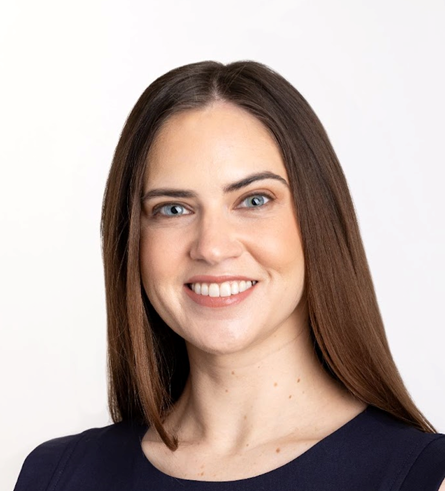
Elle O'Brien
Lecturer III and Research Investigator
University of Michigan, School of Information
Courses (3)
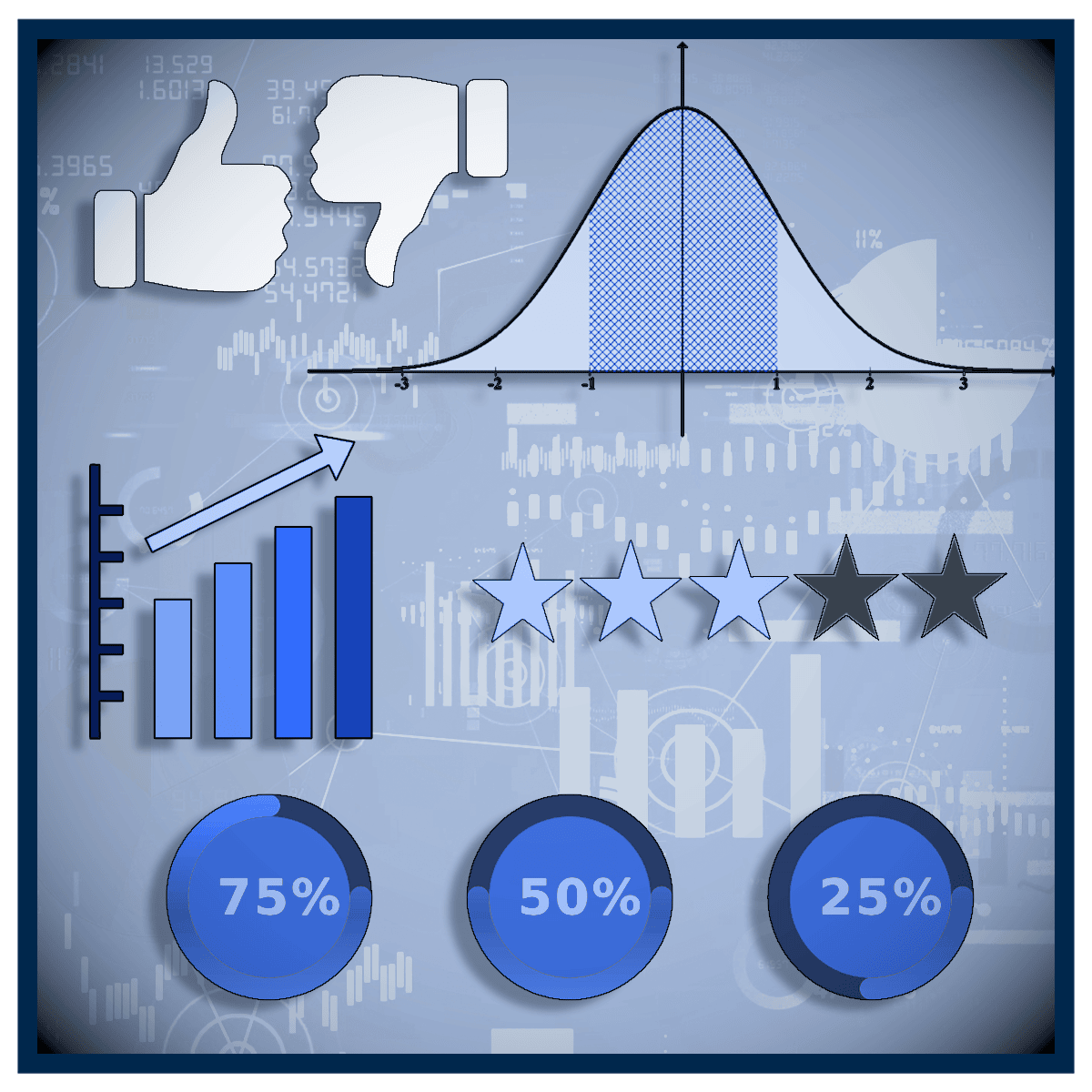
How to Describe Data

How Science Turns Data Into Knowledge
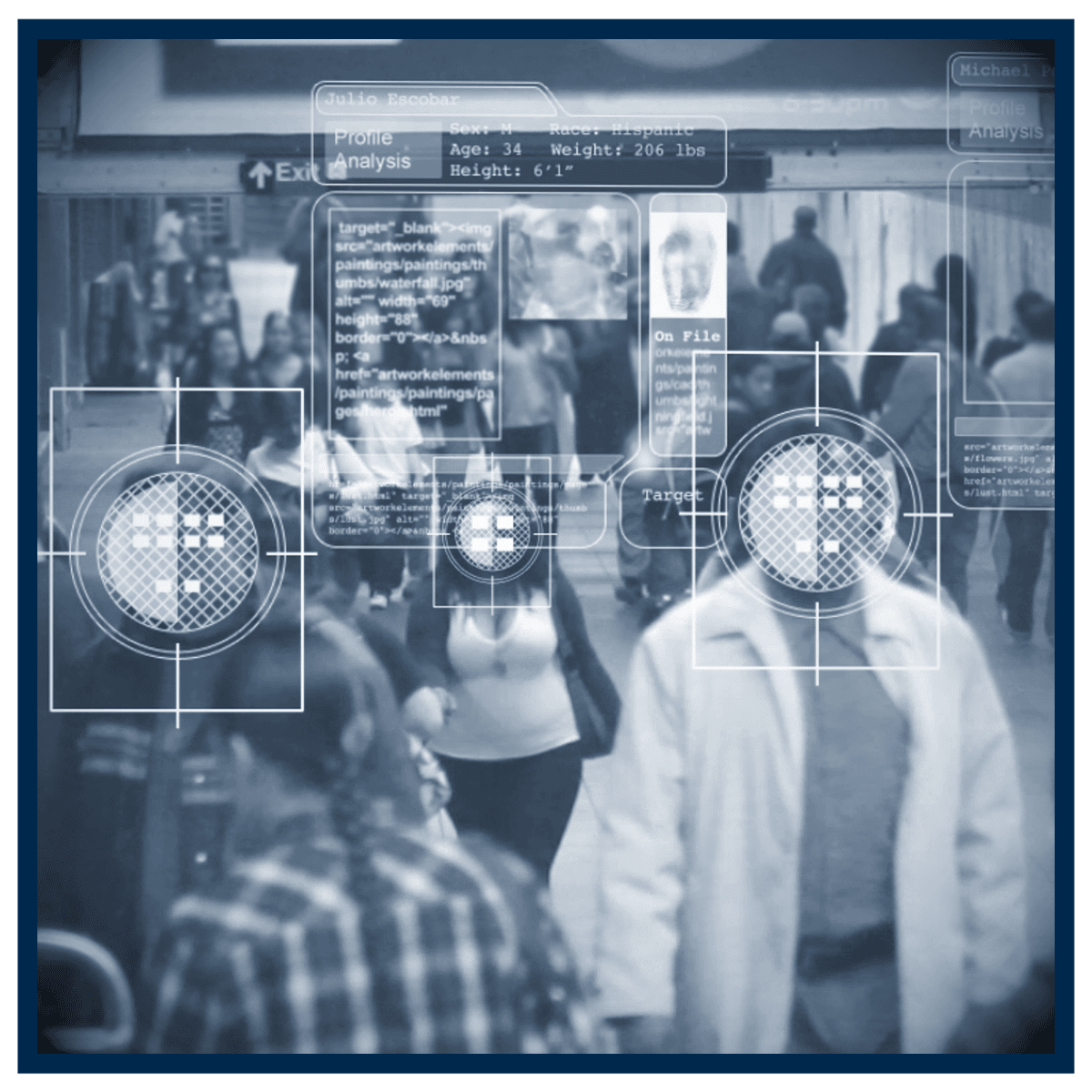
Decoding AI: A Deep Dive into AI Models and Predictions
Know someone who would like this course? Share it with them!
Share on Facebook
Share on Twitter
Share on LinkedIn
Request More Info
Fill out the form below and a member of our team will reach out right away!
" * " indicates required fields

Siamak Aram, PhD
Academic degrees.
PhD – Computer Networks – Politecnico di Torino MSc – Information Technology – Sharif University of Technology BSc – Computer science software – Zanjan Azad University AS (Associated of Science) – Computer science software – Iran Industries Research Higher Education University
Areas of Interest in Data Science
AI, Machine Learning, Deep Learning, Big Data and Cloud Computing.
Dr. Aram earned a BS degree in Software Engineering. In December 2007, he was awarded the first prize in the student passive robotic contest organized by Sharif University. Later, he graduated from Sharif University of Technology with an MS degree in Information Technology Engineering – Data Security & Networking in 2010.
Dr. Aram received a PhD in Computer and Control Engineering from the Polytechnic University of Turin in Italy in 2015. He received the best thesis award in “Energy Saving in Smart Sensor Networks for Smartphones.” He was also a Politecnico di Torino’s Academic Senate member and Ph.D. representative at the Council of the Doctorate School. In 2014, he commenced scientific work at Howard University in Washington D.C. as a visiting scholar. In addition, Dr. Aram continued with focused work on data analysis and data mining for healthcare and environmental applications.
Along with teaching in USD’s Applied Data Science program, Dr. Aram’s interests include the following fields of study: Analyzing brain behavior using deep learning/machine learning techniques by neuroimaging techniques, such as fNIRS o Current Project; A Deep Learning Approach to Find the Correlation Between Addiction Behavior in Gaming and Brain Activation Using Functional Near-Infrared Spectroscopy, in Collaboration with NIH Environmental monitoring/remote sensing using deep learning/machine learning applications. o Current Project; SRBC Monitoring Dashboard system, in collaboration with HU Center for Environment, Energy and Economy, Susquehanna River Basin Commission (SRBC) and RiverStewards.
Degree Programs
- Master of Science in Applied Data Science
- Master of Science in Applied Artificial Intelligence
Your Future Now
Earn your master’s degree on a schedule that’s convenient for you.
FOLLOW US ON SOCIAL
Introduction to Data Science and Statistics (DSE 5001)
Students will become familiar with the field of data science, its applications, and use cases. Students will learn relevant statistical topics with applications in data science. Credits: 4
Request Information
Skip to Content
- Current Students
- Faculty/Staff

Data Science
College: EN
Back to Academic Programs
The MS in Data Science is designed for those who want to elevate their career, grow their earning potential, and position themselves for advanced data science roles. Whether you want to deepen your expertise in data science, pivot from another career, or begin your professional journey, the University of Denver’s MS in Data Science will equip you with the skills and knowledge to achieve your career goals.
Combine technical expertise with responsible data practices across the data lifecycle. Hone your data modeling, analytical, and decision-making expertise as you develop a portfolio of projects of your choosing. Translate data into insights and effectively communicate storylines that drive organizational strategy and success.
We provide online and on-campus program tracks to fit your lifestyle and learning preferences. Find out more about the Python prerequisite and start your application today.
Start Dates : Online: Jan. / Apr. / June / or Sept.; or In-Person: Sept.
Curriculum : 12 Courses for 48 Credit Hours
Program Length : 18-24 Months
Request Information
15 Avg. class size for our online program
3,717 data science jobs in colorado (higher than national average), $105k avg. salary of du ms data science graduates post-graduation, master's of science in data science, our data science curriculum.
Learn From Leaders
MS in Data Science courses are taught by experienced faculty who are academics, data science leaders, innovators and executives across a range of industries. You will access their wealth of wisdom and professional mentorship throughout this program.
Industry-Aligned and Applied Content
Courses and content align with in-demand skills. What you learn in class applies in real-world scenarios and projects throughout the curriculum, which will deepen your experience, expand your skills and sharpen your expertise.
Personalized Student Support
Your trusted academic advisor will help craft your career-focused academic plan with you, offering support and assistance with academic and administrative matters throughout your journey.
Experiential Learning
Explore our Data Science Program's distinctive feature—an optional for-credit data science internship. Gain real-world experience and valuable professional connections with organizations such as McKesson Health Solutions, Xcel Energy, Jefferson County (Colorado), American Family Insurance, Nike and Charles Schwab.
Career Focus
We offer a robust array of services to help support and accelerate your career, including coaching, job search support, networking opportunities and workshops.
Diverse and Inclusive Community
You’ll benefit from a diverse community of faculty and learners deeply committed to equity, inclusion, diversity and justice and representing a wide array of backgrounds, perspectives and experiences.
Request for Information

Ready to connect?
Email Stuart at [email protected] or schedule an appointment via Calendly.
Data Science Program Info
Program at a glance.
- Online or In-Person Tracks
- 12 Courses–Finish in 18-24 Months.
- Industry-Aligned Courses and Projects.
- Start Dates: Online Jan., April, June, or Sept.; or In-Person: Sept.
- Top-Ranked University
Ready to Shape your Future in Data Science?
Submit a resume via the application status page listing your current employer(s) and professional experiences.
A regionally accredited baccalaureate degree is required for admission. You may submit an unofficial transcript with your initial application. Upon acceptance, you will need to have one official transcript from each college or university. This includes transcripts for credit earned for transfer work and study abroad. Official electronic transcripts can be sent to [email protected] through a secure third party. Official transcripts may also be sent via postal mail in an unopened envelope that has been sealed by the issuing university.
Official transcripts can be sent to:
University College University of Denver Attn: Admission 2211 South Josephine Street Denver, CO 80208
Two (2) letters of recommendation are required but three (3) are preferred. Letters should be submitted by recommenders through the online application.
A personal statement of at least 300 words is required. Your statement should provide a response to the following questions:
What is your motivation for pursuing data science at this time and why are you interested in pursuing this study at the University of Denver? Please be specific.
How has your academic training, work experience, and/or self-directed learning prepared you for graduate work in data science?
What do you expect will be the most challenging aspects of participating in the data science graduate program for you personally? What preparations can you take to overcome these challenges?
What do you want to accomplish in the future as a data scientist?
Applicants must meet the program’s Python prerequisite prior to matriculation. The prerequisite can be met either through a college-level, credit-bearing, computer programming course in Python (completed within the past two years) or by taking the University of Denver’s COMP4401, Introduction to Python for Data Scientists. In either case, a grade of ‘B’ or higher is required for prerequisite approval. Applicants who meet the prerequisite with a prior Python programming class may be asked to submit the course description and/or syllabus for review and approval.
If you wish to study on an F1 or J1 visa, please review the admission requirements for international applicants.
Application Information
Admission Steps In-Person Track
Admission steps online track.
Financial Aid

Start Your Application
Advance your career with a Master of Science in Data Science
Courses and Curriculum
The curriculum prepares students to design tools that collect, evaluate and interpret data to inform critical decisions. Through rigorous, mathematically based coursework, learners master advanced concepts for a strong foundation for professional success and self-direction.
Python Software Development (COMP 3006)
In this advanced Python programming course, you will design custom classes to accomplish data science tasks. You will also develop facility with Python's standard library as well as important data processing packages.
Data Science Math I & II (COMP 3007/3008)
In this set of courses you will develop and refine your knowledge of calculus, linear algebra, basic probability, and discrete math to master computational processes and problems in machine learning and statistics.
Database Organization & Management (COMP 3421)
This course will enable you to design, diagram, and query relational and non-relational database management systems. Particular focus will be given to SQL scripting and embedded programming.
Machine Learning (COMP 4432)
In this course you will acquire industry-ready skills for predictive modeling and data mining based contemporary machine learning algorithms and techniques.
Data Visualization (COMP 4433)
In this course you will investigate and apply a range of visualization strategies and methods for data exploration, analysis, and communication.
Probability & Statistics for Data Science (COMP 4441/4442)
In this set of courses you will use the R programming language to apply inferential concepts and applications. Linking theory and practice, you will deepen your understanding of parametric and nonparametric statistics for data analysis as well as key steps in model selection, testing and evaluation. You will also apply these skills to complete an independent project based on real world data.
Deep Learning (COMP 4531)
In this course you will learn how to design, train, and evaluate complex multi-layer neural networks in Python. You will also add to your data science portfolio by completing a culminating project of your own design.
Algorithms for Data Science (COMP 4581)
In this course you will design, analyze, and code algorithms for computational efficiency and problem-solving. Including the processing of large data sets.
Internship (COMP 3904)
This course allows you to receive credit toward graduation for participating in a paid data science internship. You will also receive mentoring from an an academic advisor of your choice.
Parallel & Distributed Computing (COMP 4334)
This course will enable you to work with machine learning algorithms and big data at scale. Along the way, you will learn industry practices for implementing these technqiues as well as insight into the architectures that support them.
Data Science Tools I & II (COMP 4447/4448)
These courses are designed to strengthen your coding and data acquisition skills as well as familiarize you with a broad range of data science methods. You will also refine skills for data-centric project development and collaboration that are prerequisites to professional practice.
Capstone (COMP 4449)
In this course you will learn to design, develop, test and present 'full-cycle' data science products or services. And assess their value in relation to real world situations and needs.
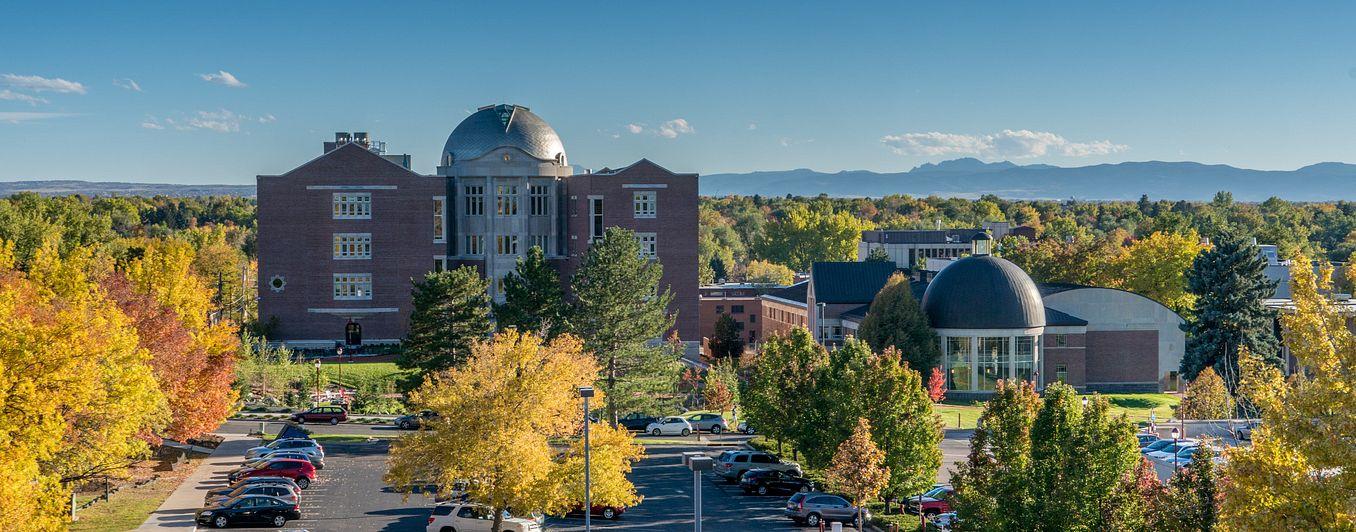
Our world needs you. Discover your future today.
If you’re ready to unlock your full potential with a Data Science Degree from the University of Denver’s Ritchie School of Engineering & Computer Science, begin your application today. Your future awaits.
Apply Today

Undergraduate Applicants
The Common App is a universal application that can be sent to many schools, including the University of Denver.
First-Year Students Transfer Students
Graduate Applicants
Go to the graduate admission application to submit your information. For information on admission requirements, visit the graduate academic programs page and locate your program of interest.
Graduate Application
Explore Programs
Graduate Academic Programs
Take The First Step
Undergraduates.
Contact Undergraduate Admission
Request Info
Request Graduate Program Information

IMAGES
VIDEO
COMMENTS
Average Graduate Tuition: $5,999/year in-state; $11,199/year out-of-state. Total Points: 8 (points were determined using in-state tuition) DSU features one of the most flexible data science Doctor of Philosophy programs in this ranking. You can take courses online or on-campus and attend full or part-time.
Based in San Diego, California, National University (NU) offers a variety of online programs, including a Ph.D. in data science. NU's program requires 60 credits and takes an estimated 40 months ...
Learn about Wharton's PhD program in Statistics and Data Science, which covers theoretical and applied research in various fields. Find out the program requirements, courses, faculty, and contact information.
A Master's in Data Science is a graduate degree between a bachelor's and PhD, which usually takes between one and two years to complete. A master's degree expands on what was learned in undergraduate school through more advanced courses in topics such as machine learning, data analytics, and statistics.
PhD in Data Science (on-campus) Stevens Institute of Technology is accredited by the Middle States Commission on Higher Education. 10. University of Central Florida. Located along Orlando's Space Coast, the University of Central Florida is a public research university with a student enrollment of approximately 69,525.
The Doctor of Philosophy program in the Field of Statistics is intended to prepare students for a career in research and teaching at the University level or in equivalent positions in industry or government. A PhD degree requires writing and defending a dissertation. Students graduate this program with a broad set of skills, from the ability to ...
An online Ph.D. in data science can lead to careers in analytics, business leadership, and machine learning. The BLS projects that computer and research scientist jobs will grow 22% between 2020-2030. These professionals earned a median annual salary of $126,830 in 2020, much higher than the $41,950 for all workers.
The PhD in statistics and data science at Yale University offers broad training in the areas of statistical theory, probability theory, stochastic processes, asymptotics, information theory, machine learning, data analysis, statistical computing, and graphical methods. Students complete 12 courses in the first year in these topics.
PhD Program Overview. The doctoral program in Statistics and Data Science is designed to provide students with comprehensive training in theory and methodology in statistics and data science, and their applications to problems in a wide range of fields. The program is flexible and may be arranged to reflect students' interests and career goals.
An NRT-sponsored program in Data Science Overview Overview Advances in computational speed and data availability, and the development of novel data analysis methods, have birthed a new field: data science. This new field requires a new type of researcher and actor: the rigorously trained, cross-disciplinary, and ethically responsible data scientist. Launched in Fall 2017, the …
Doctor of Philosophy in Data Science. Make informed decisions and drive growth with the 100% online Doctor of Philosophy in Data Science (PhD-DS) degree program at National University. Get an edge in the dynamic data science field by increasing your knowledge through a PhD-DS that's aligned with industry needs, including the CRISP structure.
Wharton offers a PhD program in Statistics that covers both theory and applications of statistics. Students can work on problems from various fields within and outside Wharton, such as finance, marketing, biostatistics, and computer science.
The Ph.D. programs of the Department of Statistics at Carnegie Mellon University enable students to pursue a wide range of research opportunities, including constructing and implementing advanced methods of data analysis to address crucial cross-disciplinary questions, along with developing the fundamental theory that supports these methods.
Department of Statistics and Data Science. Yale University Kline Tower 219 Prospect Street New Haven, CT 06511. Mailing Address: PO Box 208290, New Haven, CT 06520-8290. Shipping Address (packages and Federal Express): 266 Whitney Avenue, New Haven, CT 06511. Department Phone: 203.432.0666
Learn about the Ph.D. program in statistics at UT Austin, a leading department in statistics and data sciences. The program offers a flexible curriculum, research opportunities, and financial support for up to five years.
Graduate Programs. The Department offers several graduate programs, one leading to the new Ph.D. degree in Statistics and Data Science, two leading to an M.A. degree in Statistics, and one leading to an M.S. degree in Statistics and Data Science. The programs are administered in different ways, even though they share many courses.
Students should discuss this specialization option with their Ph.D. advisor and their department's director for graduate studies. The specialization consists of either five (5) courses from the lists below, or four (4) courses plus one (1) additional course approved by the curriculum committee. All courses must be taken for a letter grade and ...
The PhD requires a minimum of 135 units. Students are required to take a minimum of nine units of advanced topics courses (for depth) offered by the department (not including literature, research, consulting or Year 1 coursework), and a minimum of nine units outside of the Statistics Department (for breadth).
Many PhD students in the MIT Physics Department incorporate probability, statistics, computation, and data analysis into their research. These techniques are becoming increasingly important for both experimental and theoretical Physics research, with ever-growing datasets, more sophisticated physics simulations, and the development of cutting-edge machine learning tools.
Students are expected to advance to candidacy for the Ph.D. degree within six quarters of full-time work. Completion of all degree requirements (including the dissertation) normally takes 15 quarters. The maximum time to degree is 24 quarters. Termination of Graduate Study and Appeal of Termination. University Policy.
About the Program. Demand for professionals skilled in data, analytics, and machine learning is exploding. The U.S. Bureau of Labor Statistics reports that demand for data science skills will drive a 27.9 percent rise in employment in the field through 2026. Data scientists bring value to organizations across industries because they are able to solve complex challenges with data and drive ...
Doctoral Curriculum. This program is designed for students who desire academic research careers. The foundation is a sequence of courses in probability, mathematical statistics, linear models and statistical computing. The program also encourages study in a cognate area of application. Up to four courses per semester may be counted toward the ...
Applied Statistics (PhD) ... This program is part of the School of Data Science, also known as San Pedro I, and is housed in a cutting-edge facility dedicated to advancing the field of data science and fostering innovation in data-driven research and education. San Pedro I is a state-of-the-art facility specifically designed for hands-on ...
Start earning your master's in high-growth data science. No matter your academic background, the Master of Data Science (MS-DS) is an ideal choice if you're interested in a career in data science. Program admission is based on your performance in your first three courses. You'll learn theory, methods, tools, and programming languages ...
A data scientist earns an average salary of $108,659 in the United States, according to Lightcast™ [1]. Demand is high for data professionals—data scientists occupations are expected to grow by 36 percent in the next 10 years (much faster than average), according to the US Bureau of Labor Statistics (BLS) [ 2 ].
Understanding Data: Navigating Statistics, Data, and AI equips you with the knowledge to engage with data from a more nuanced perspective and increase your impact as a decision-maker in an increasingly data-driven world. Throughout this three-course series, develop essential data literacy skills to navigate claims about data, statistics, science, and artificial intelligence - with no math or ...
Dr. Aram earned a BS degree in Software Engineering. In December 2007, he was awarded the first prize in the student passive robotic contest organized by Sharif University. Later, he graduated from Sharif University of Technology with an MS degree in Information Technology Engineering - Data Security & Networking in 2010.
To boost your quantitative reasoning skills, the HarvardX: Fat Chance: Probability from the Ground Up course is perfect for building up that knowledge. In this course, you would go through material that increases your understanding of probability and statistics, such as: Basic and advanced counting. Basic and Conditional Probability.
Students will become familiar with the field of data science, its applications, and use cases. Students will learn relevant statistical topics with applications in data science. Credits: 4
Start Dates: Online: Jan. / Apr. / June / or Sept.; or In-Person: Sept. Curriculum: 12 Courses for 48 Credit Hours. Program Length: 18-24 Months. Request Information. 15 Avg. class size for our online program. 3,717 Data Science jobs in Colorado (Higher than national average) $105k Avg. salary of DU MS Data Science graduates post-graduation.